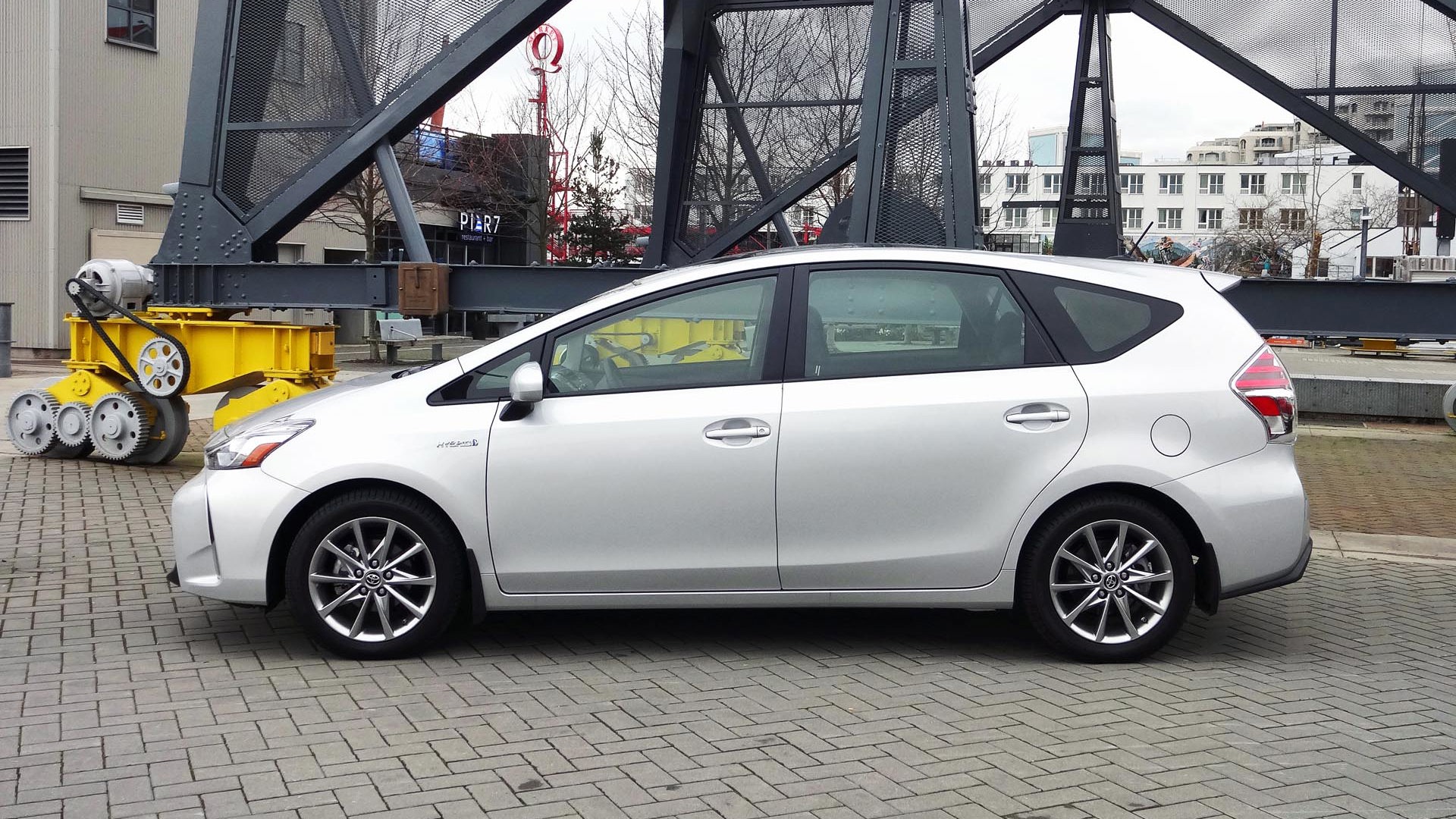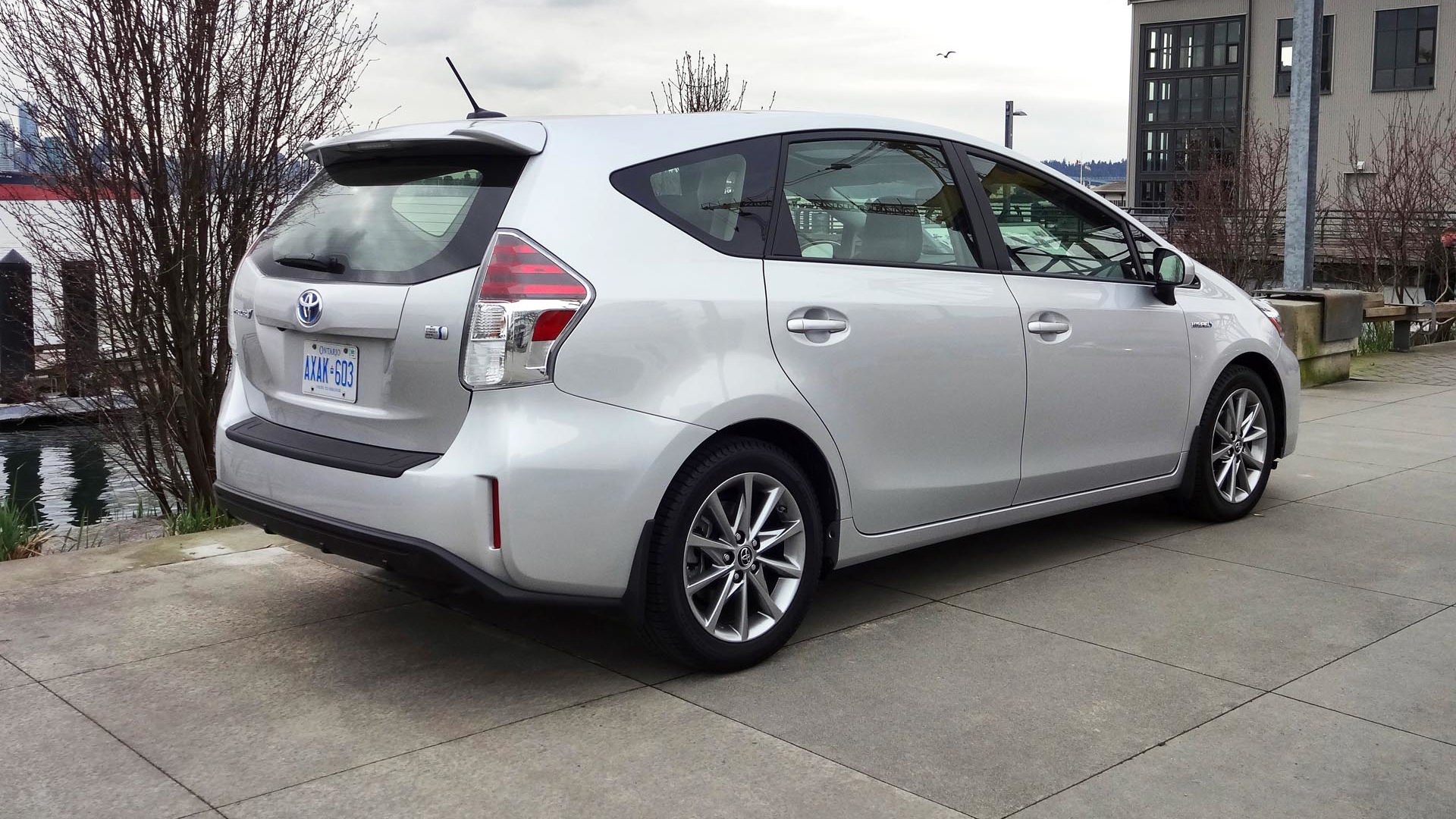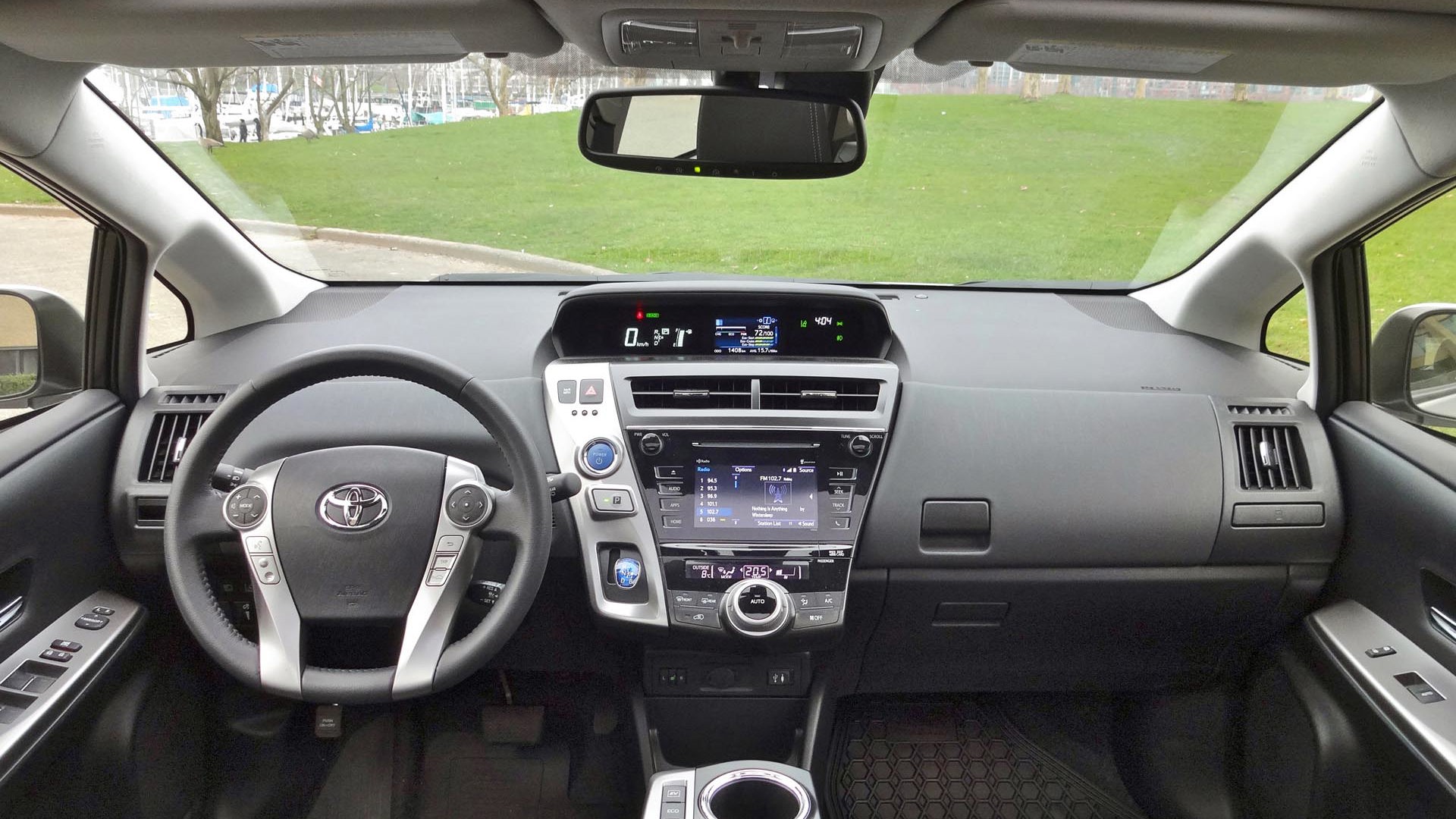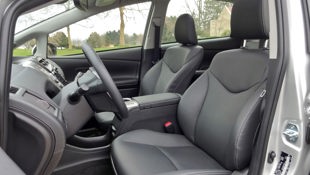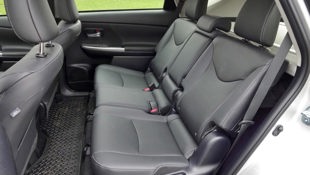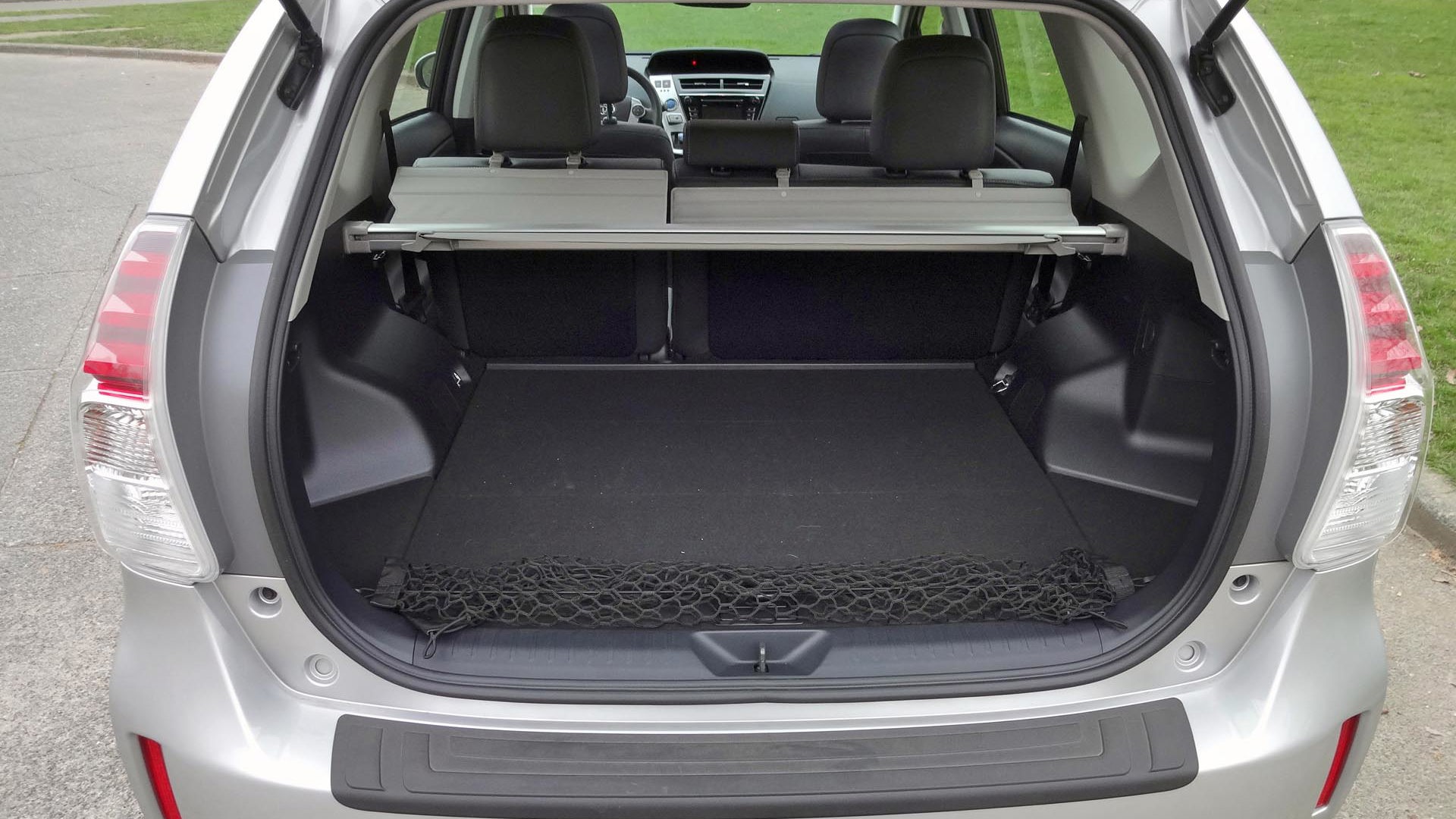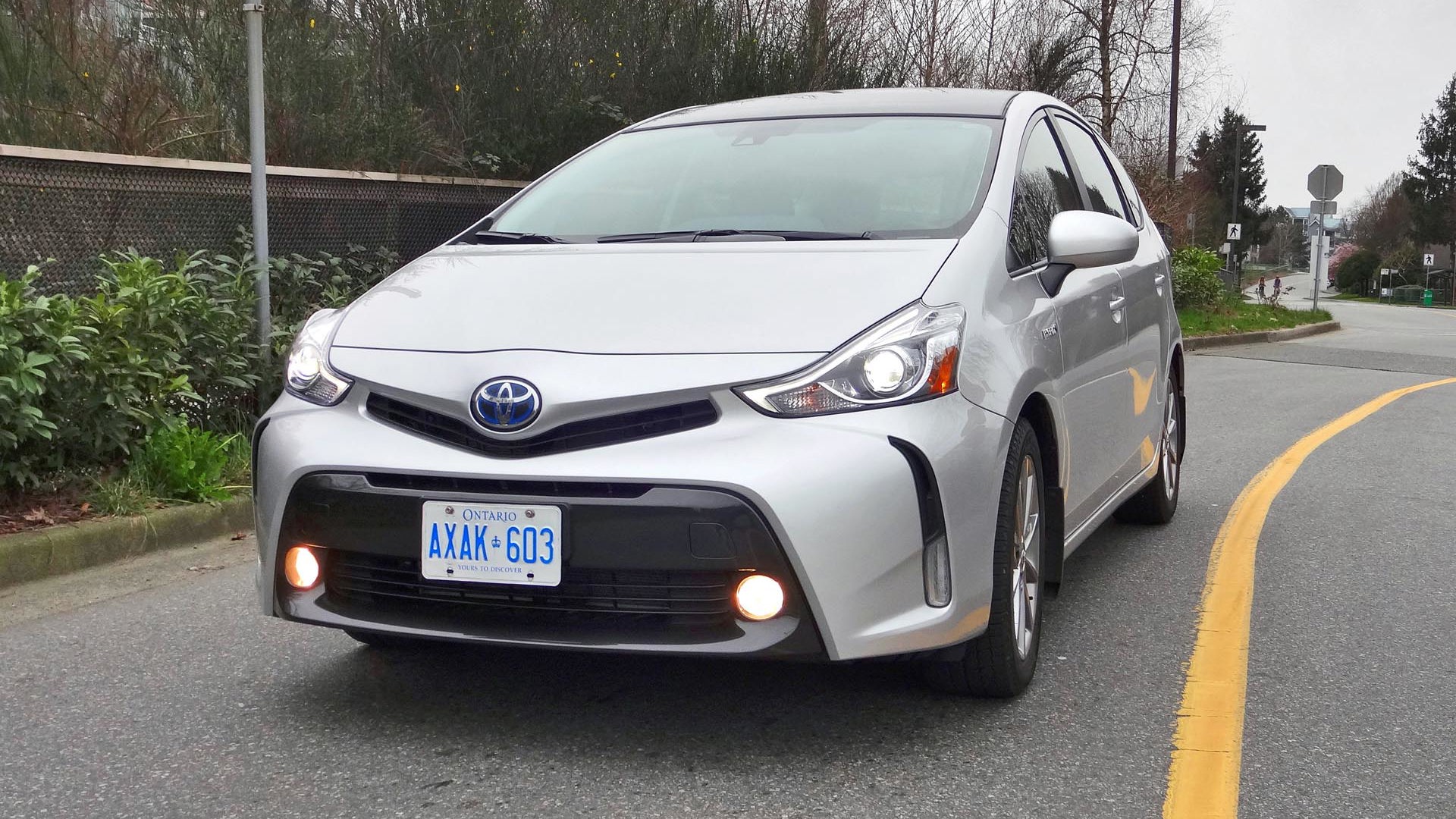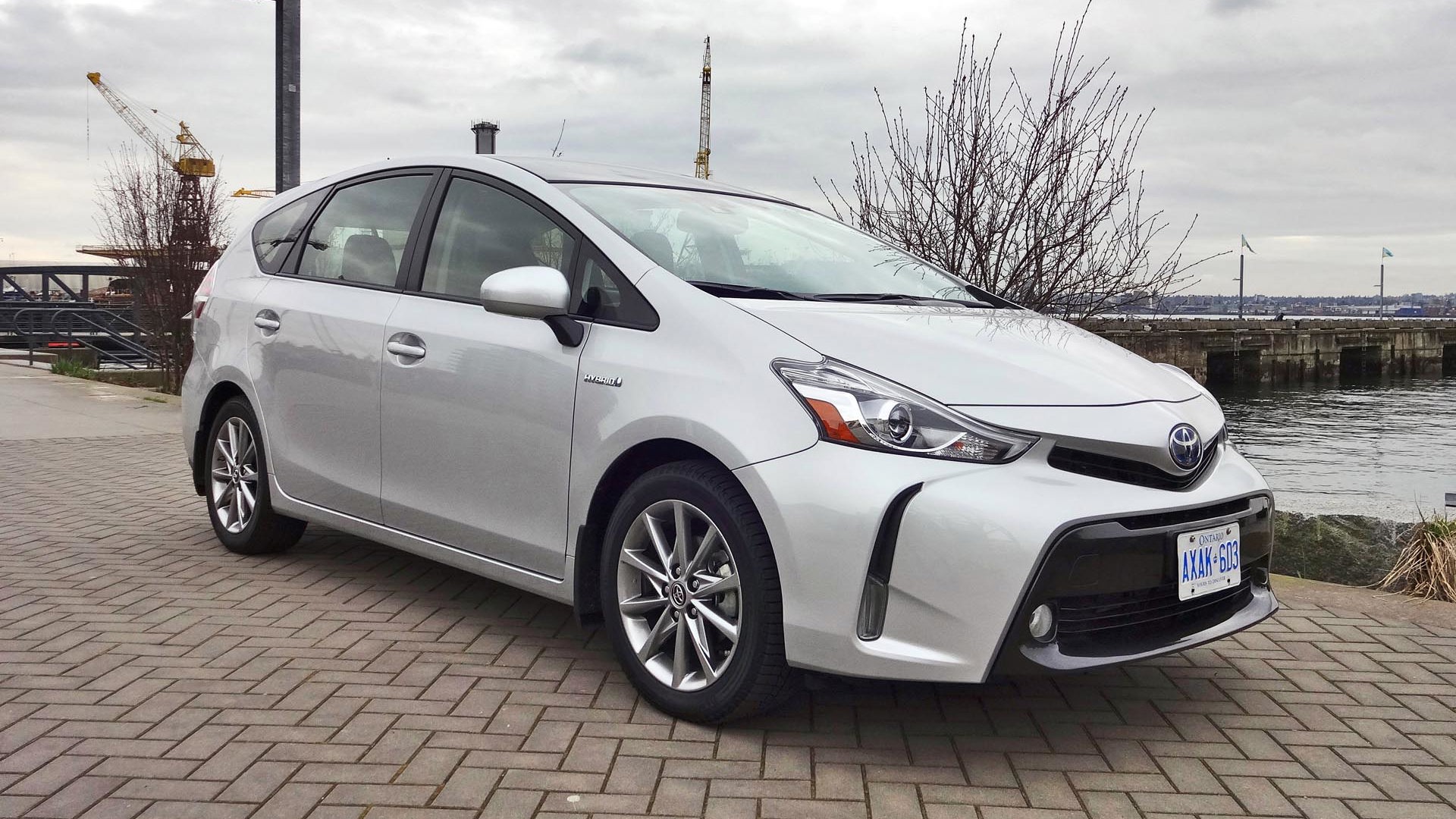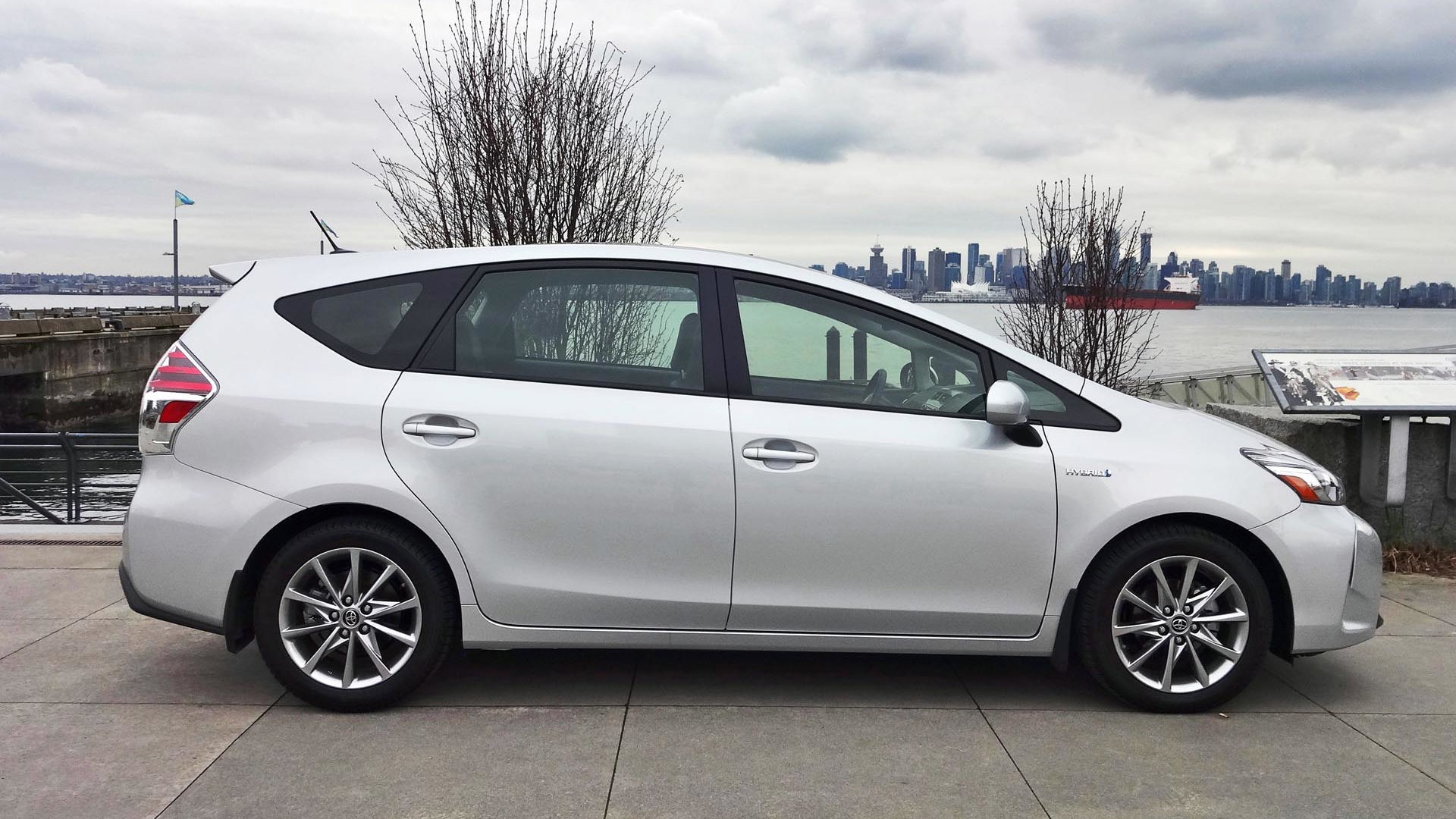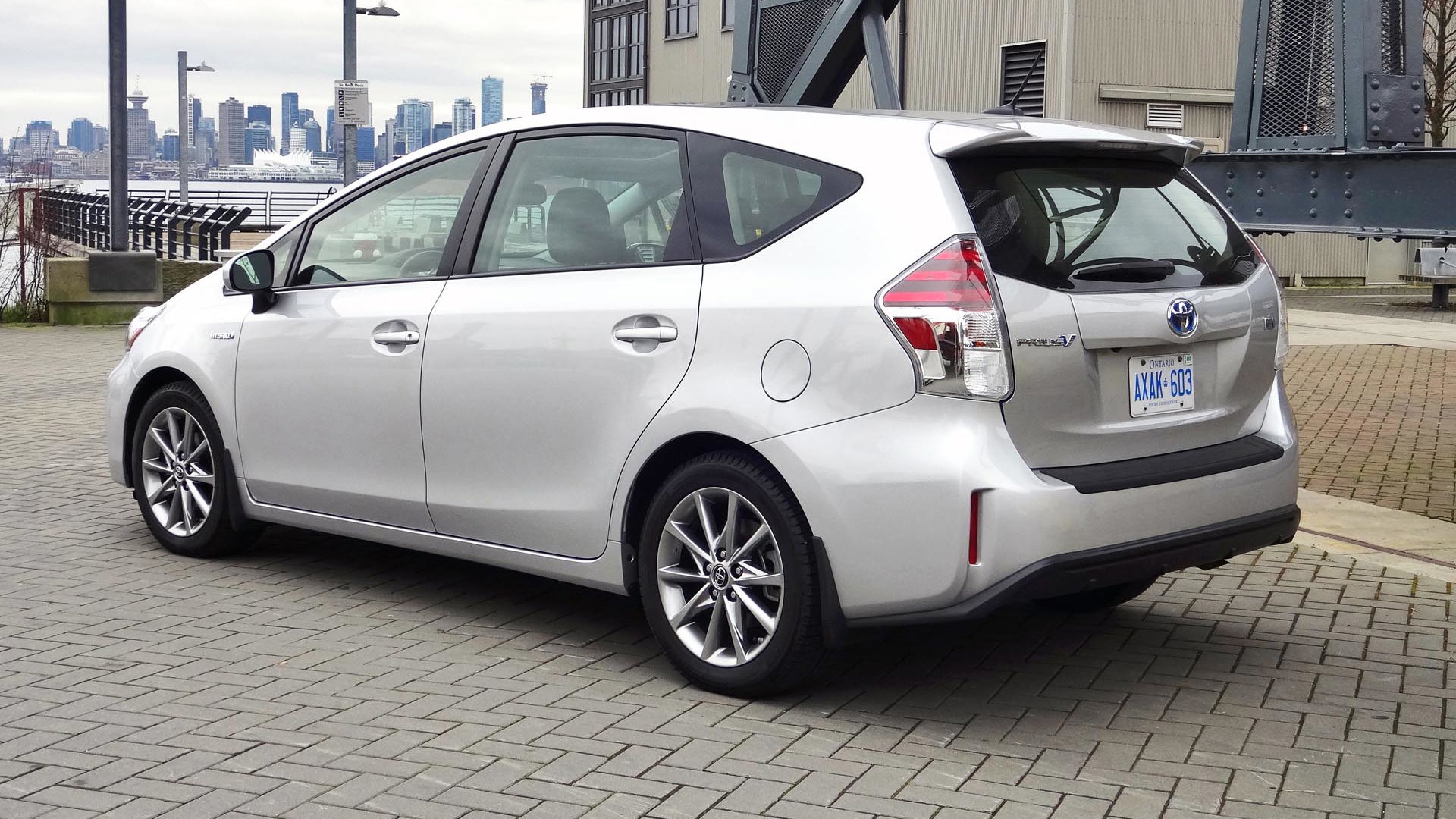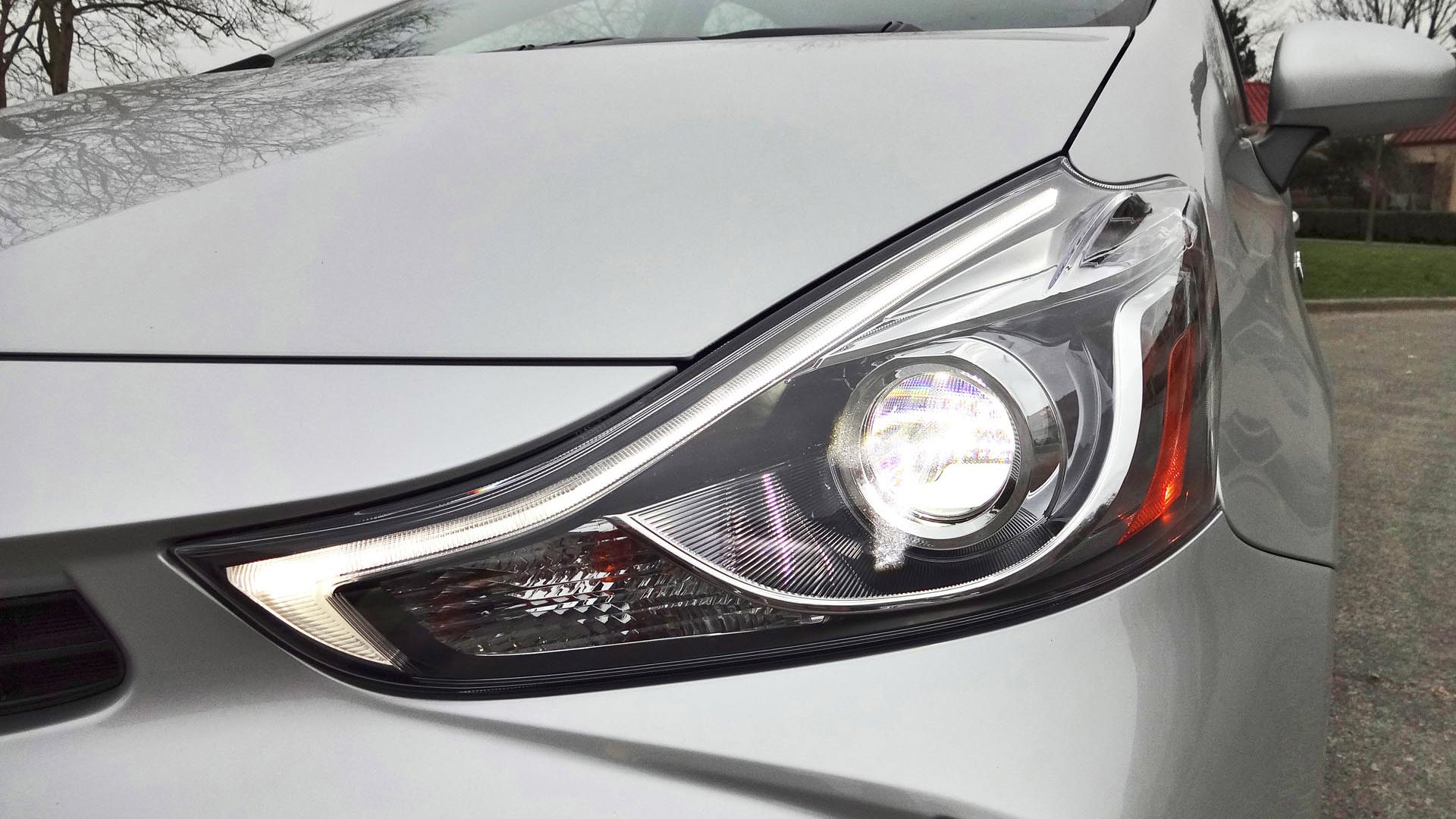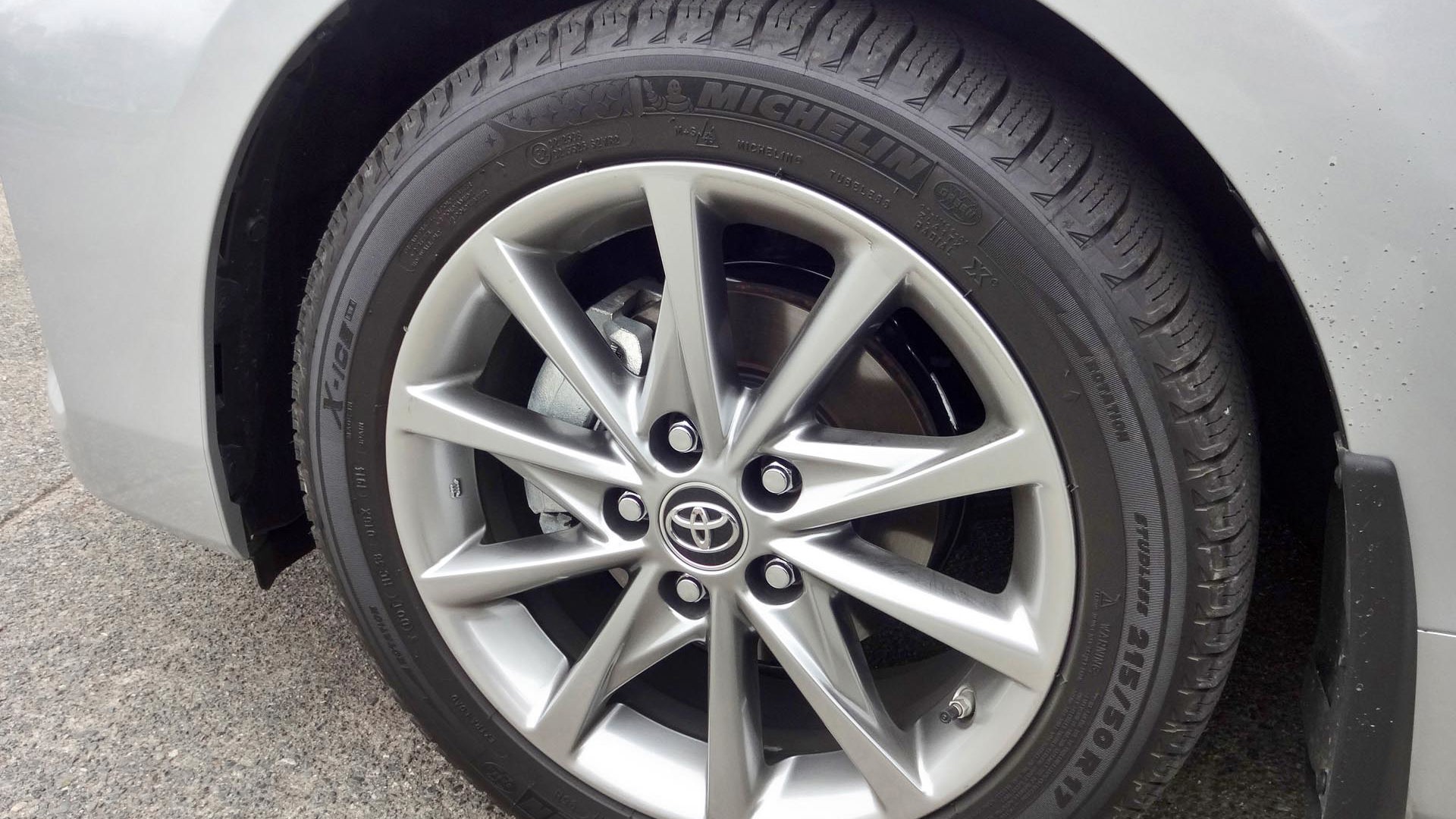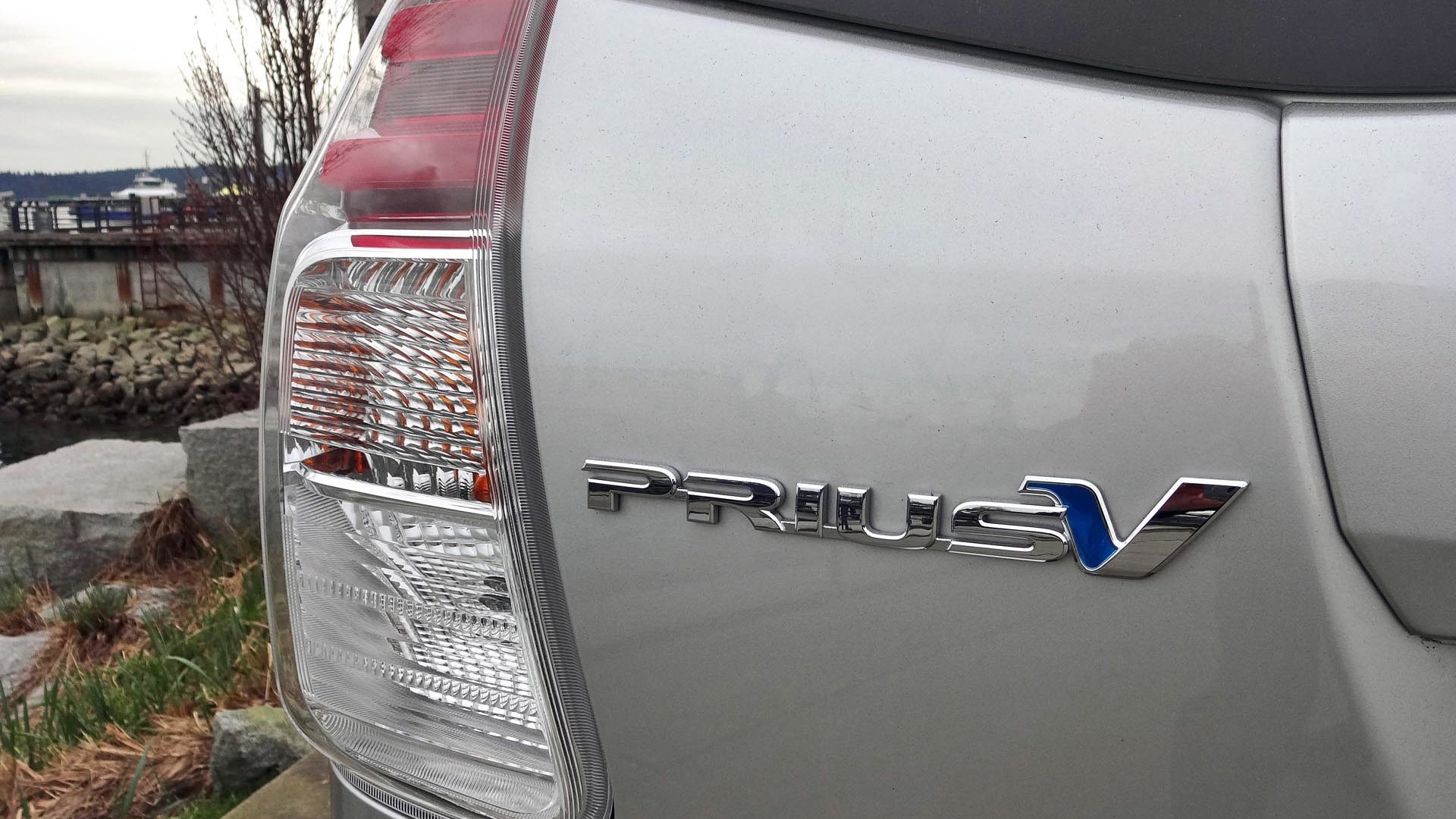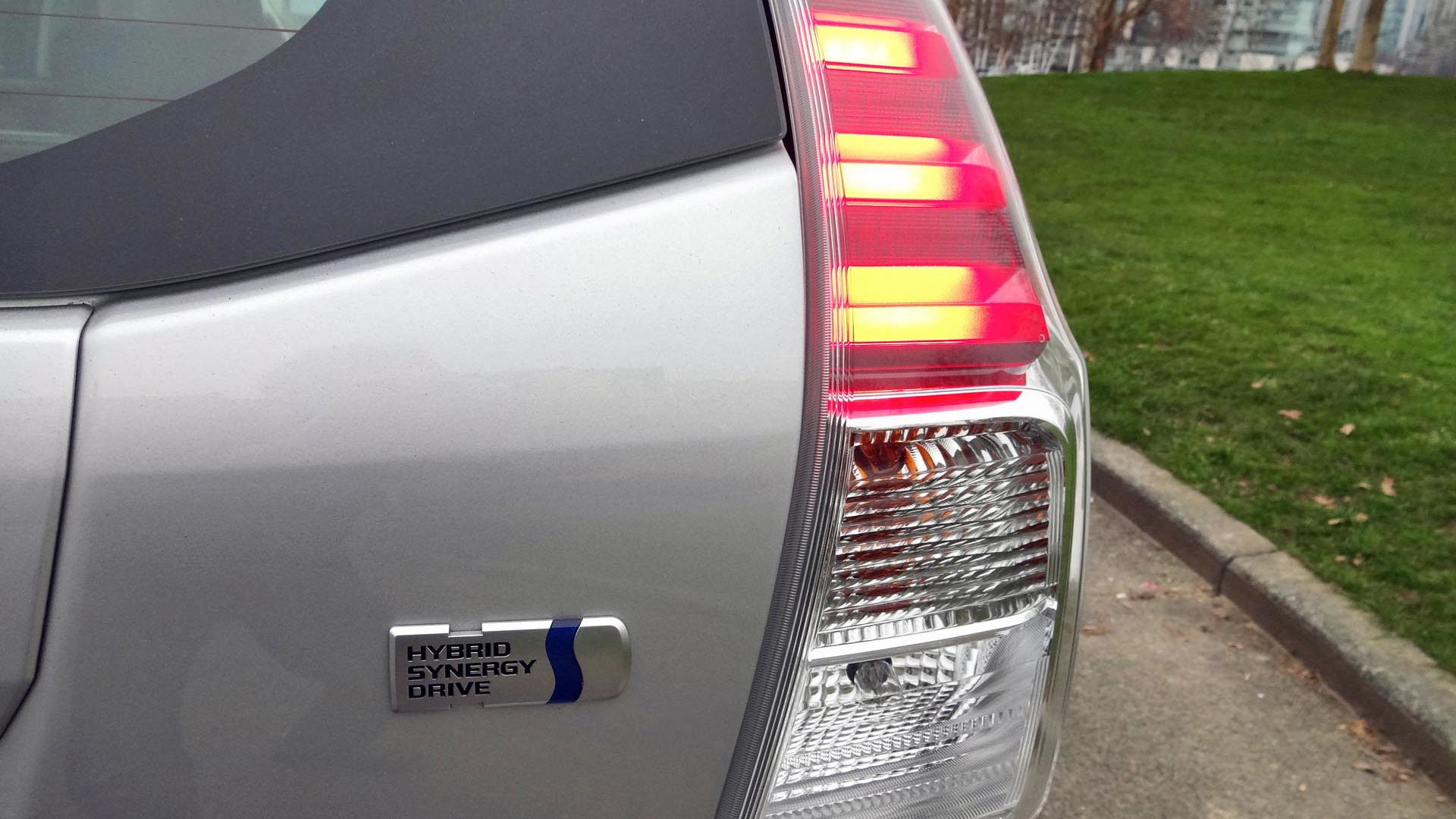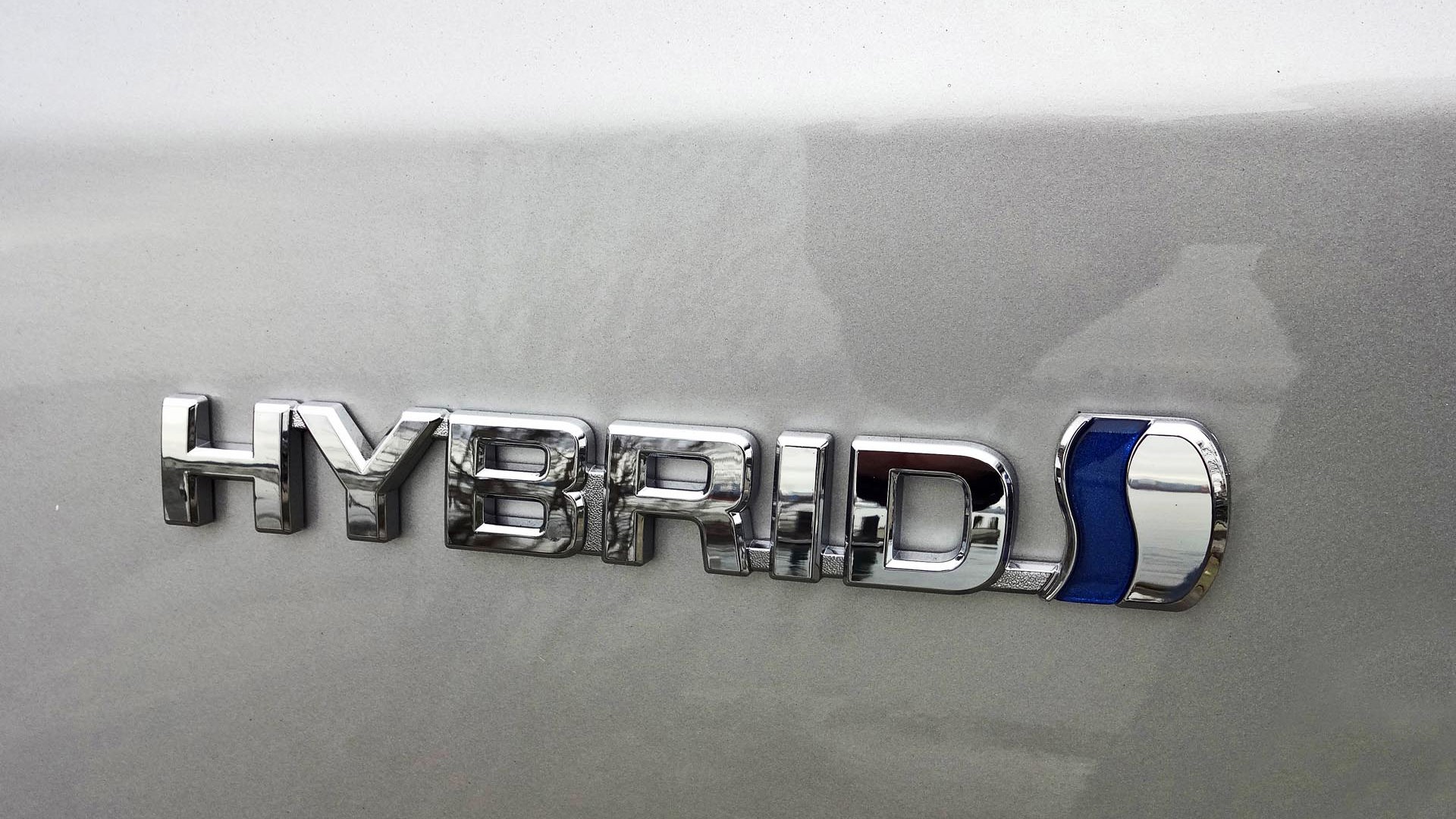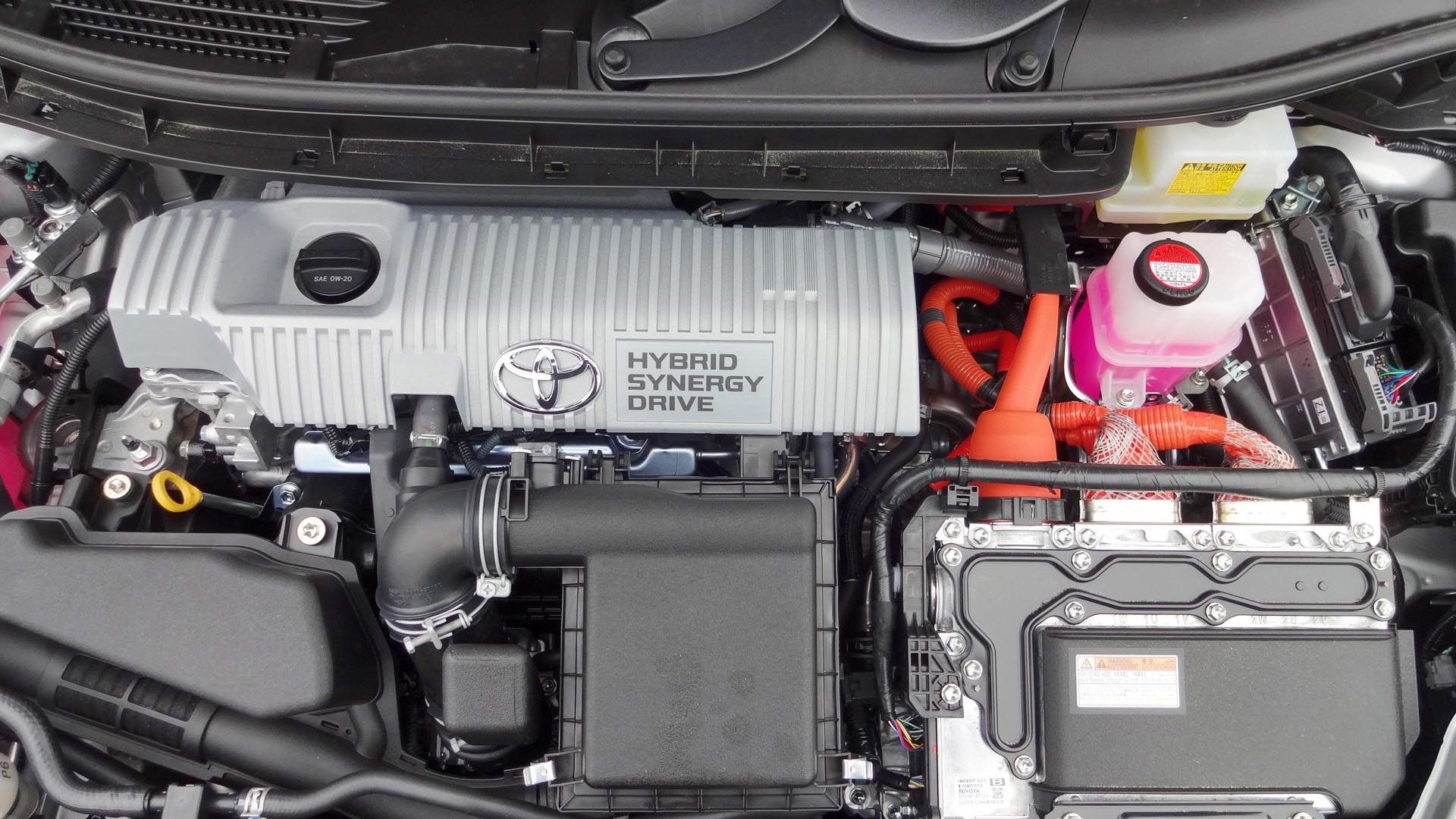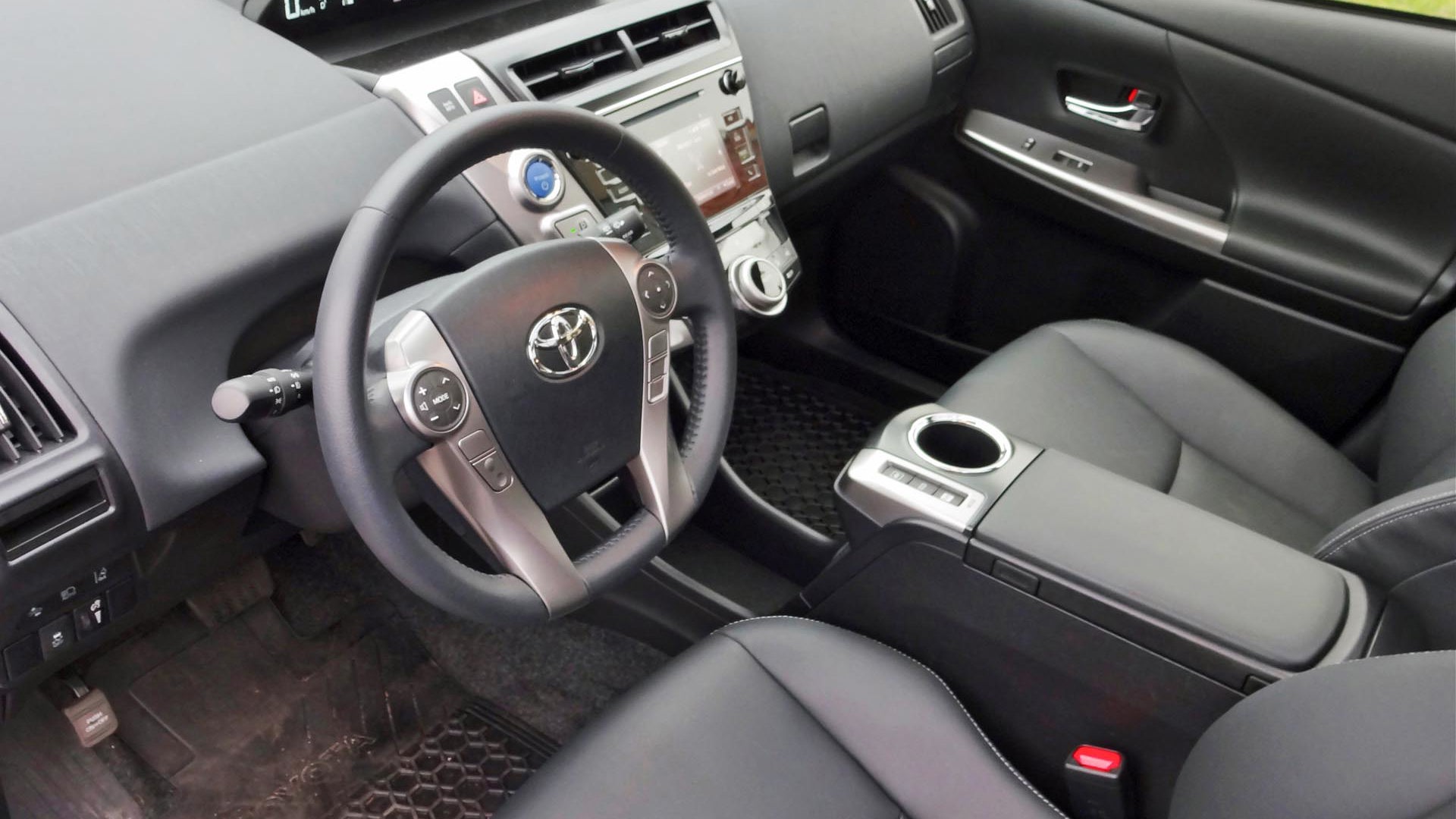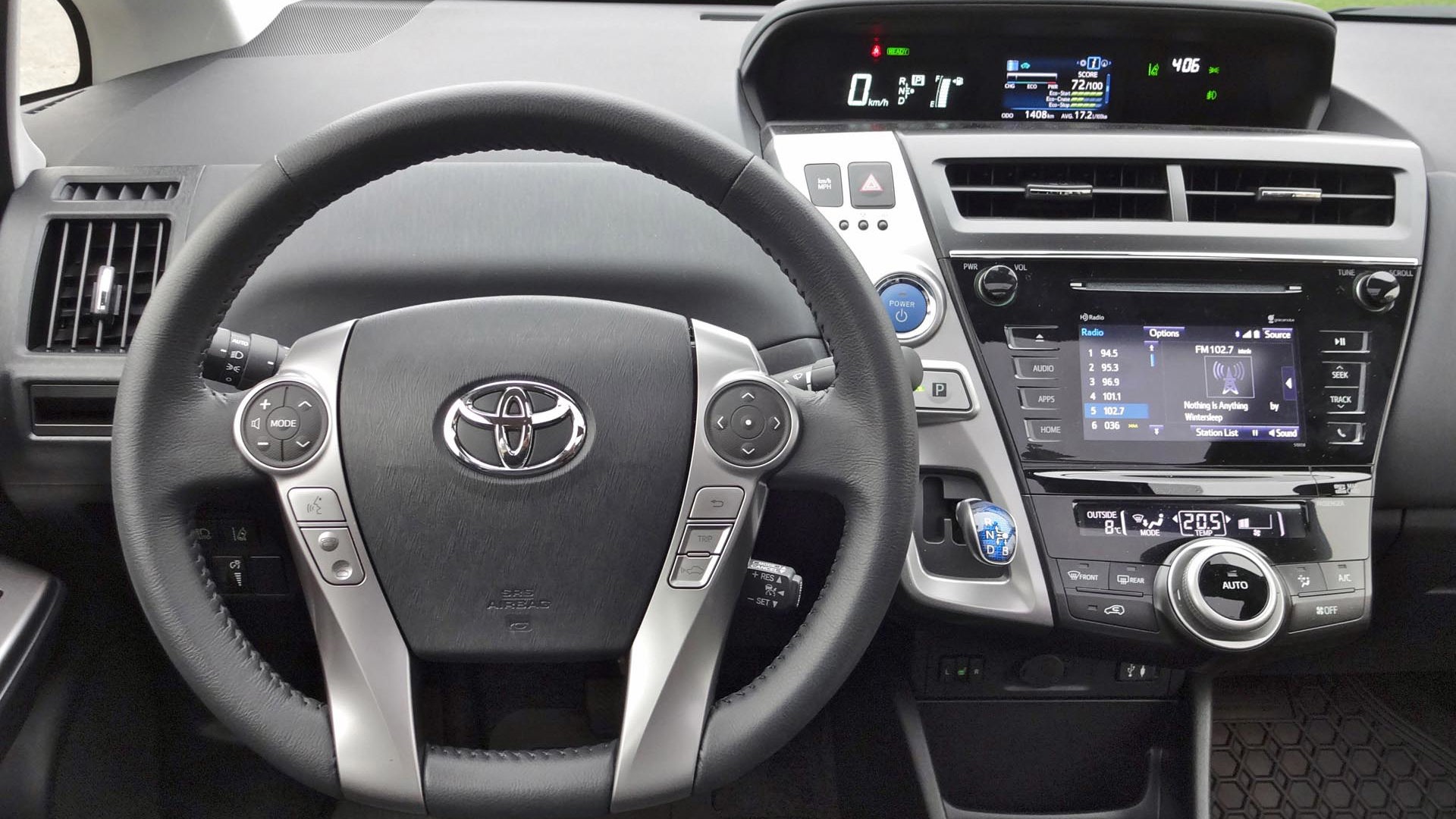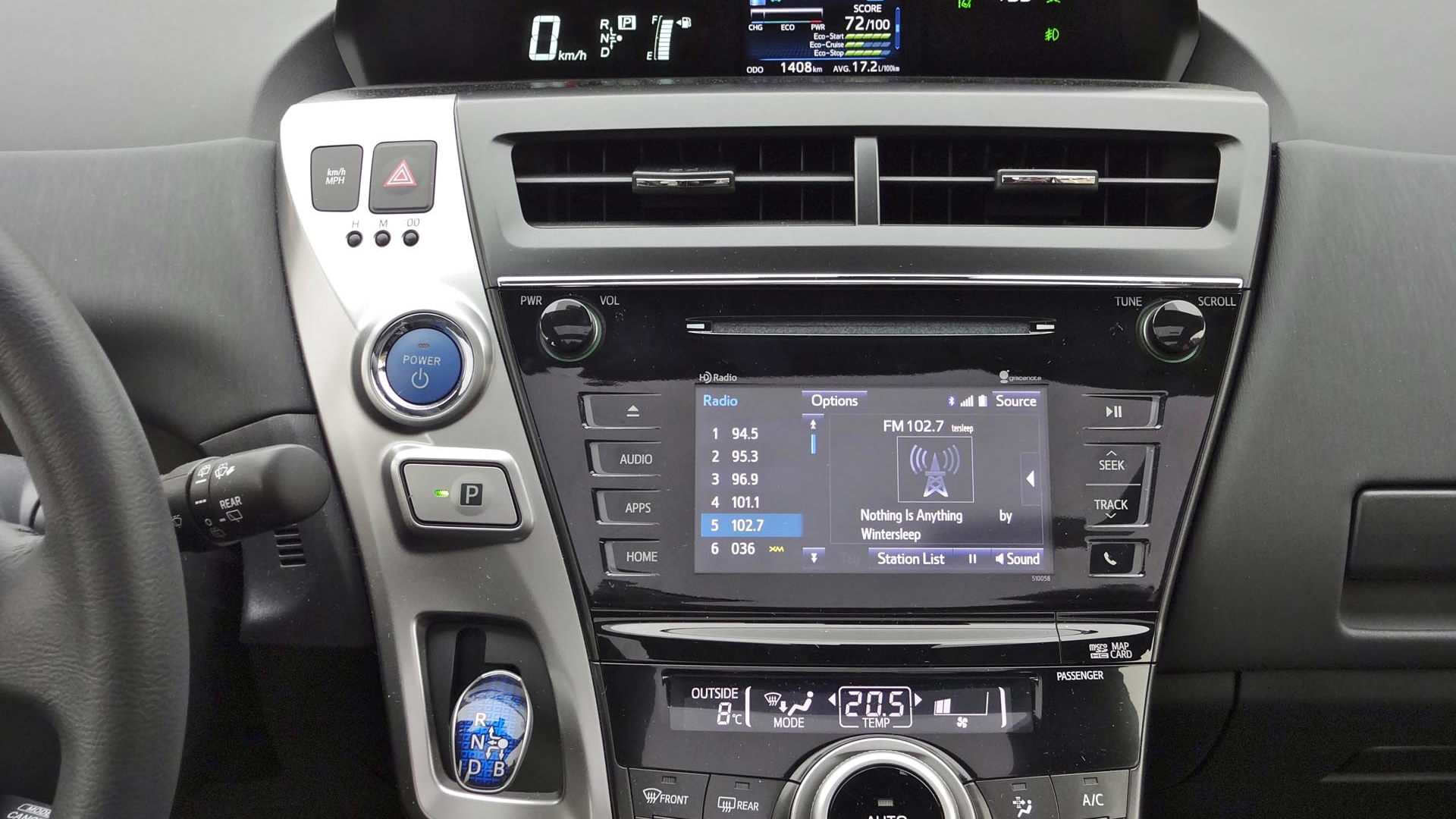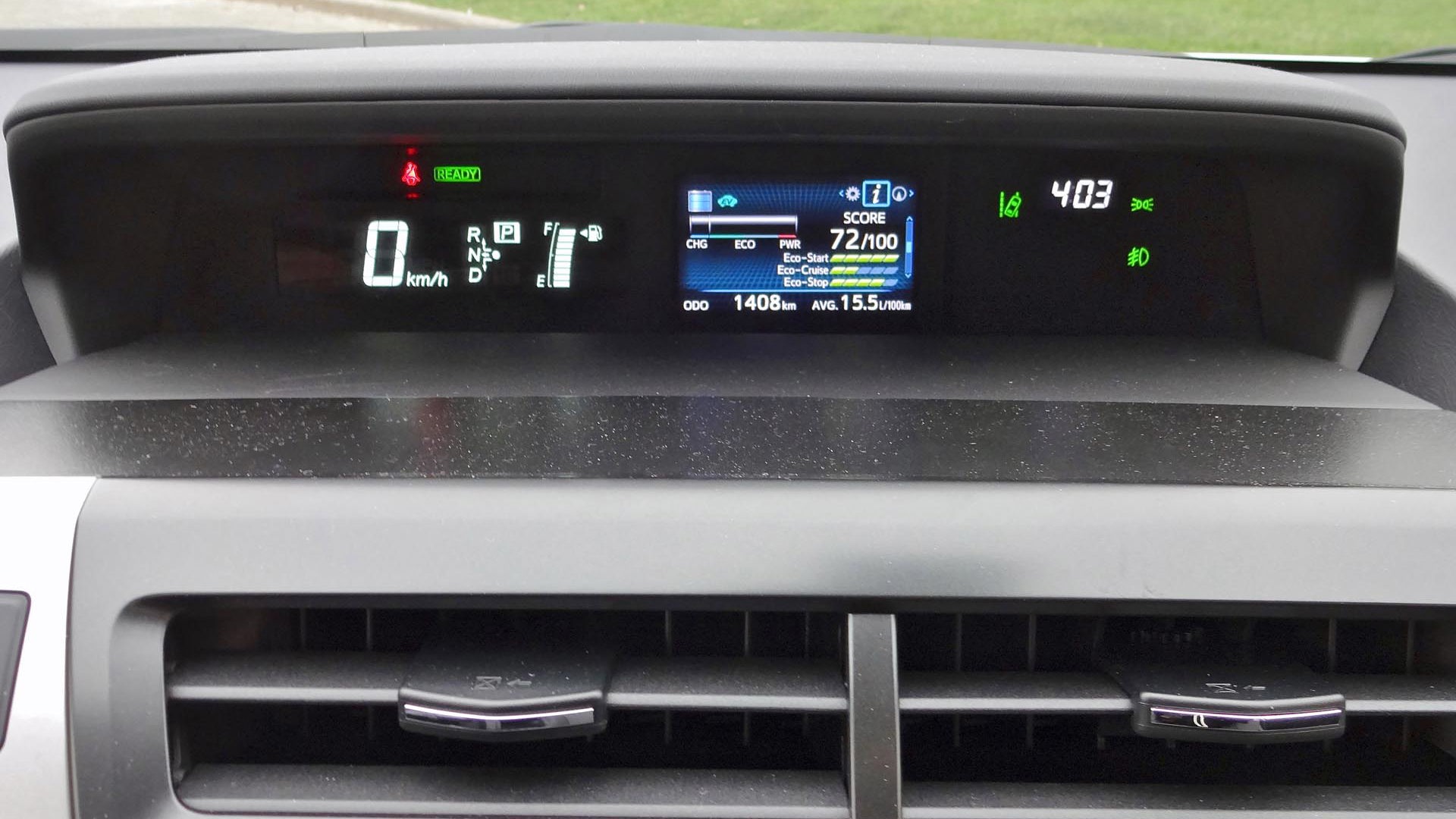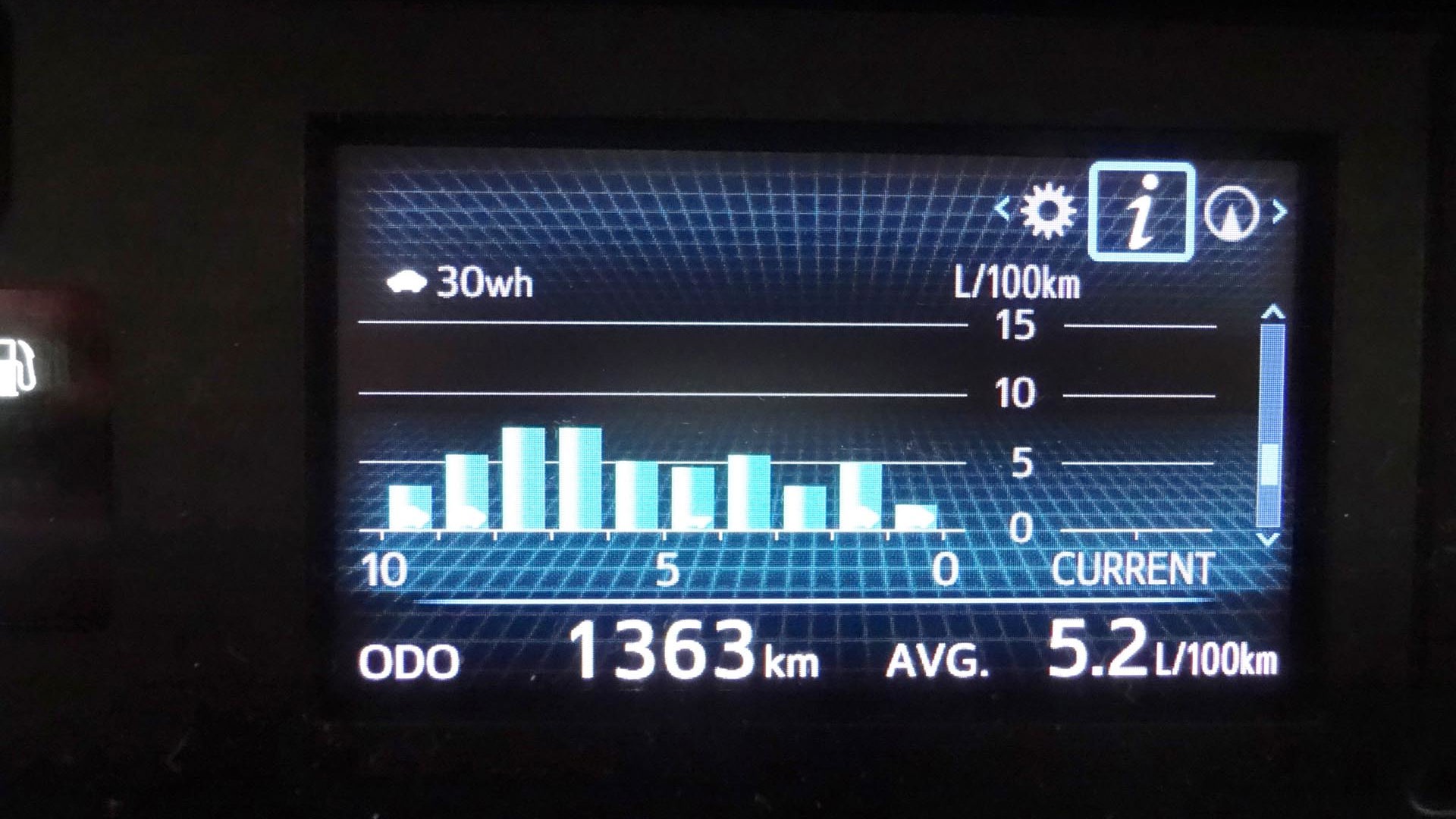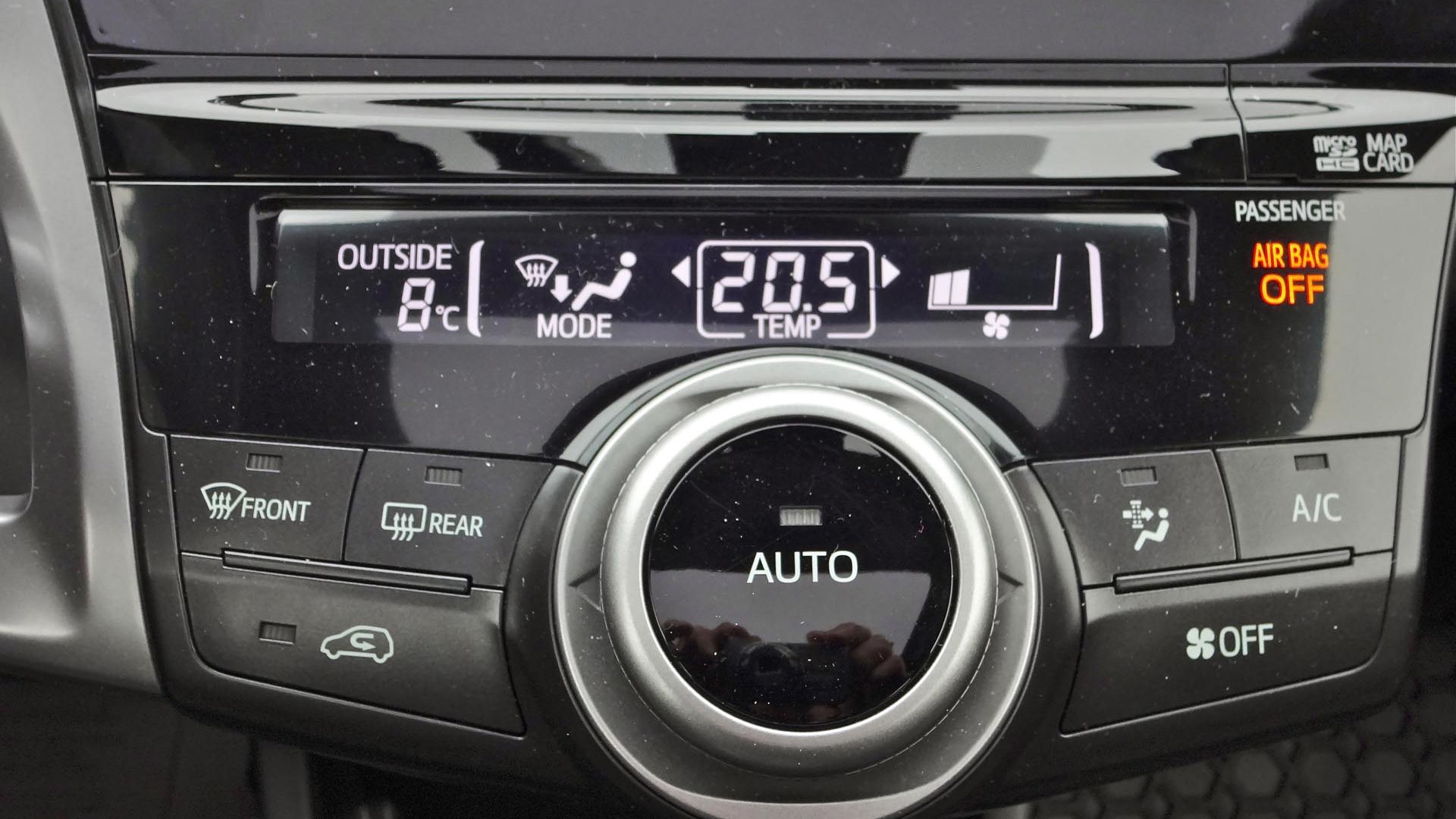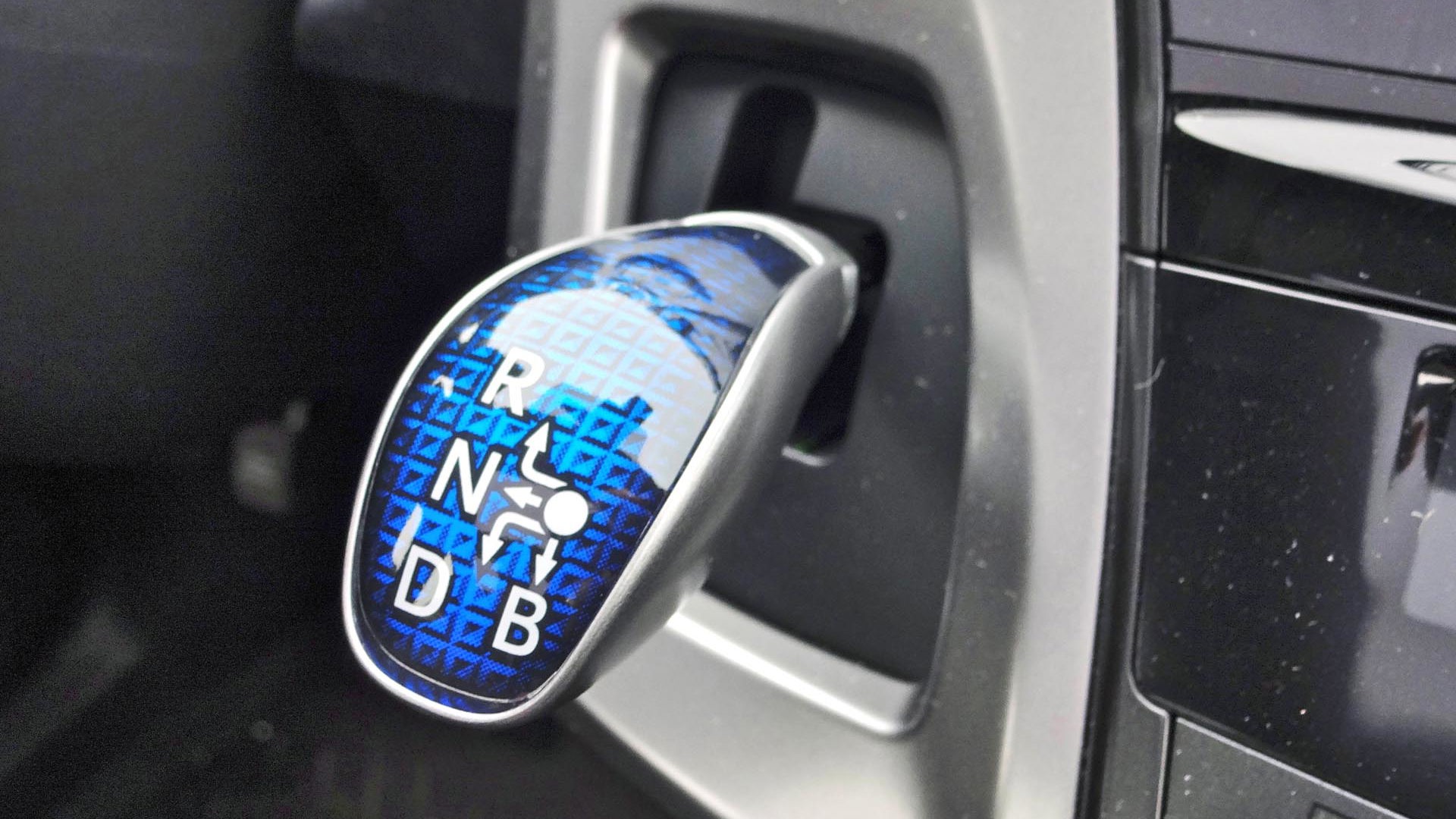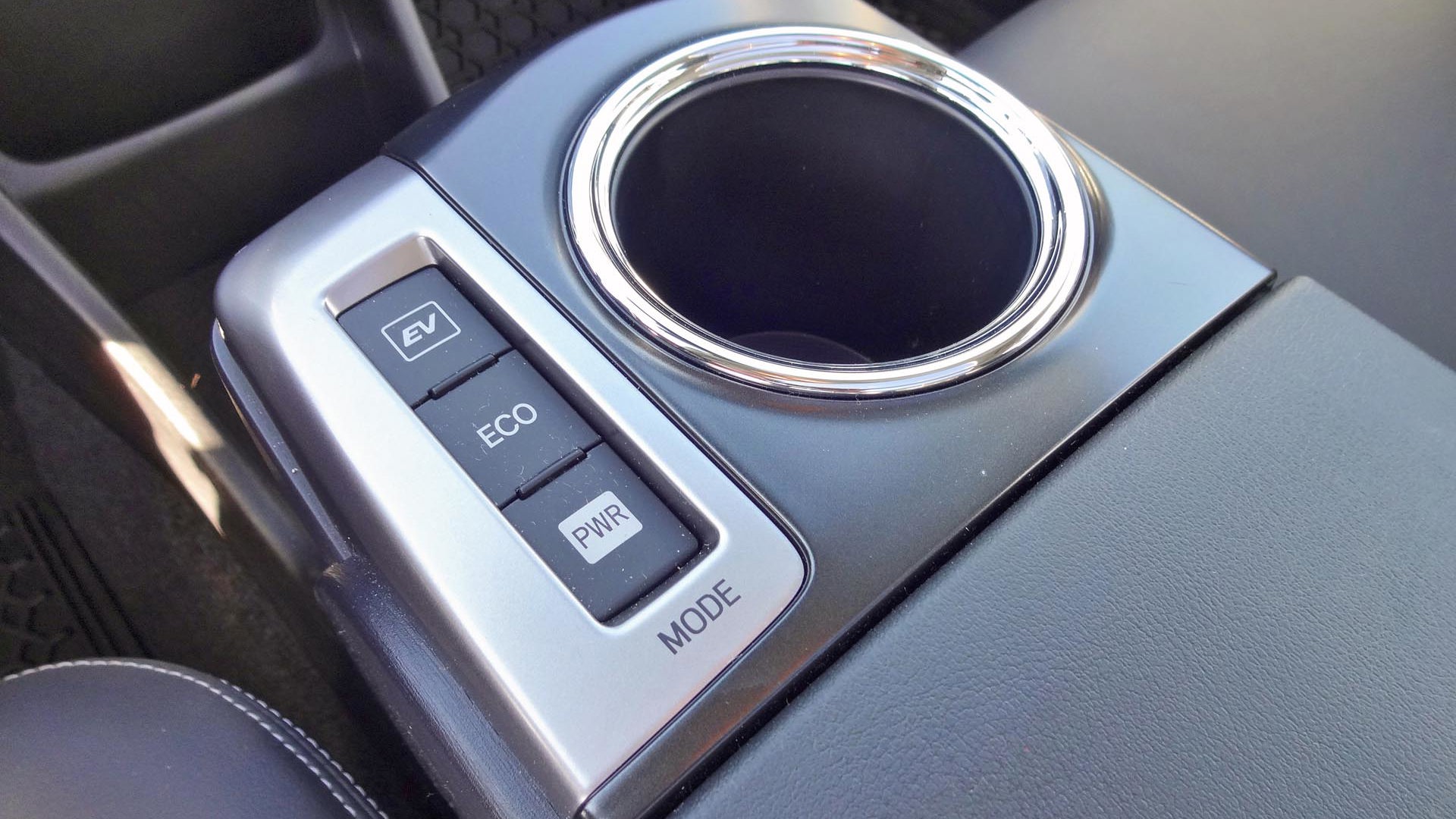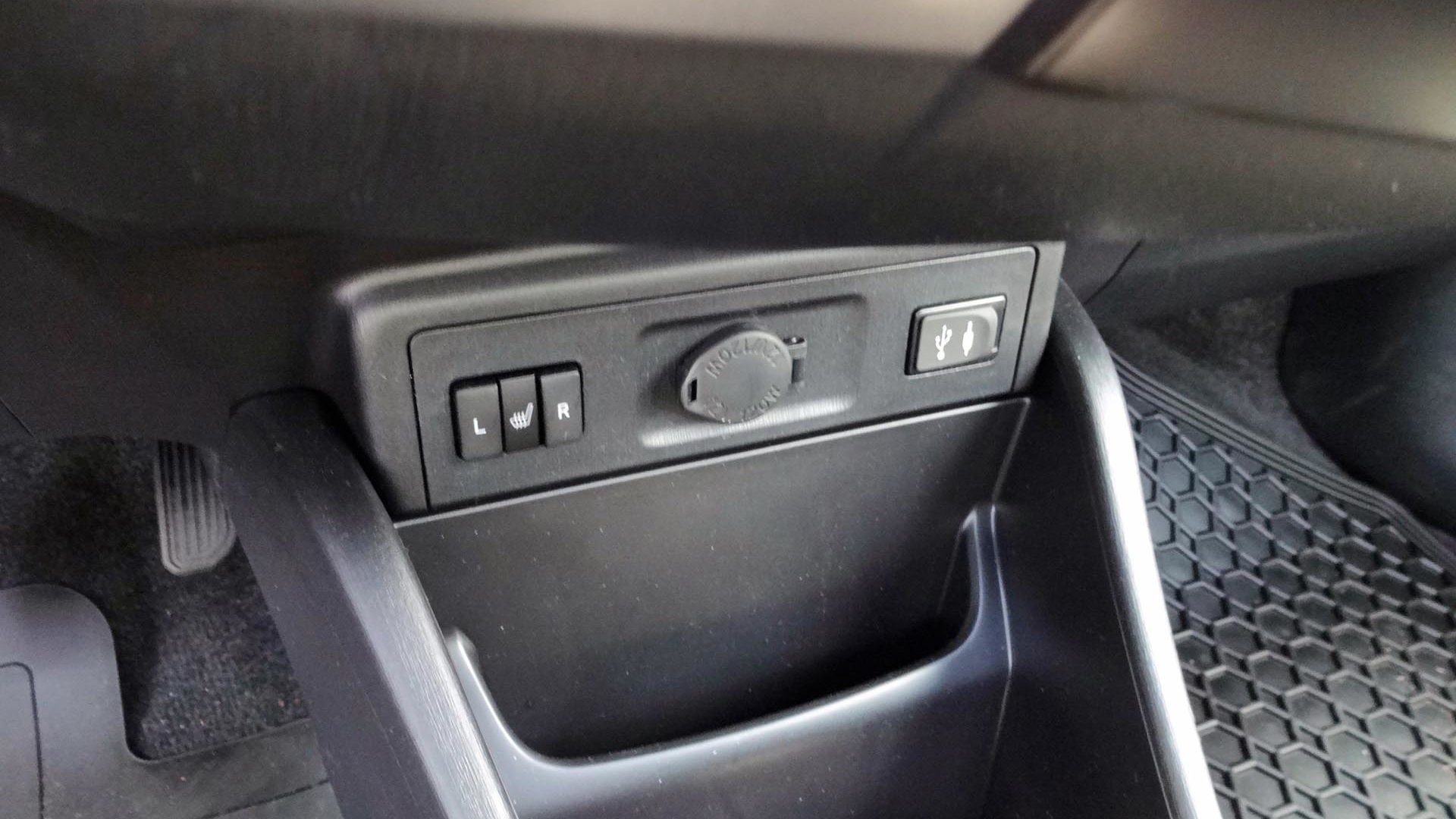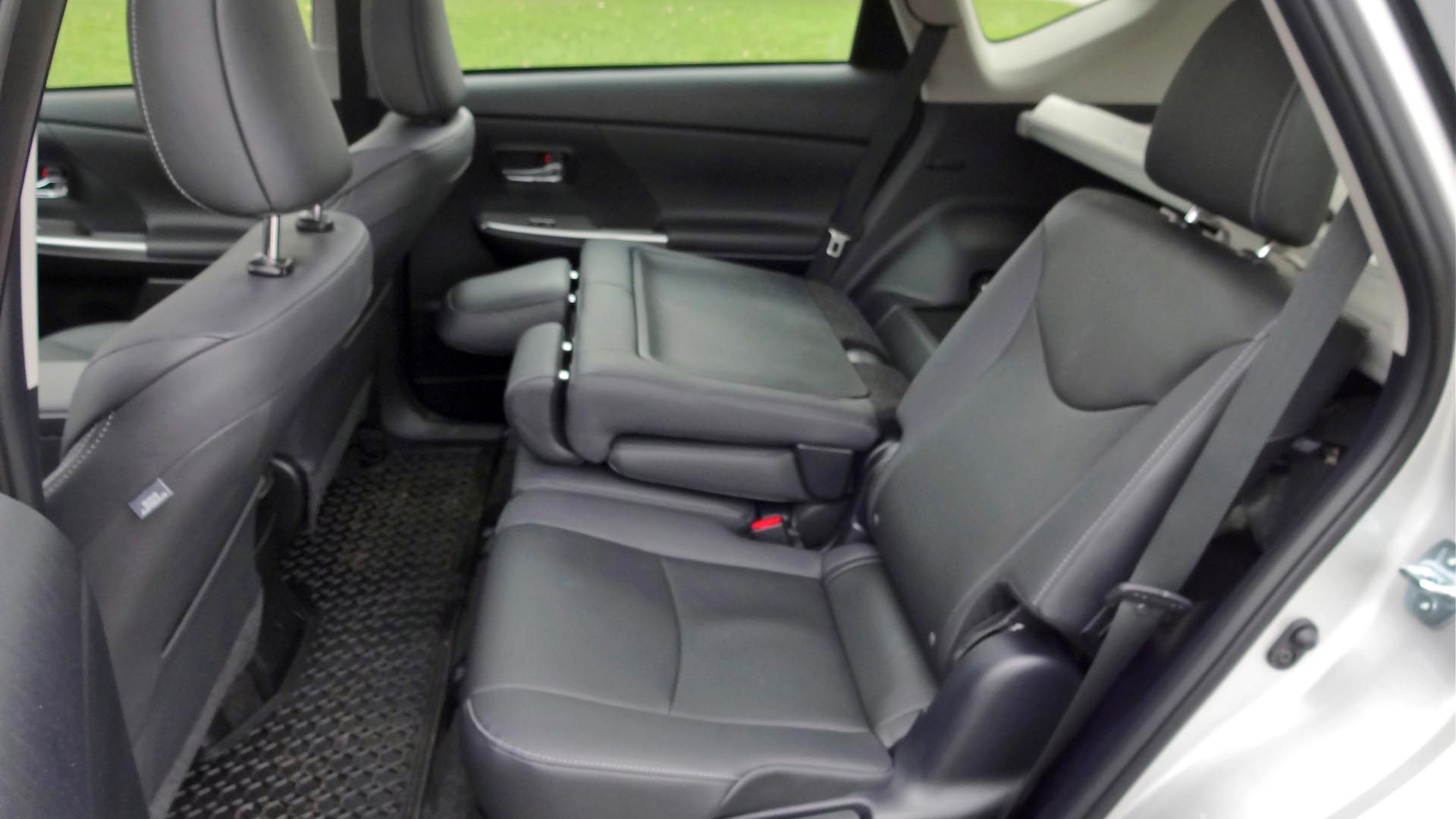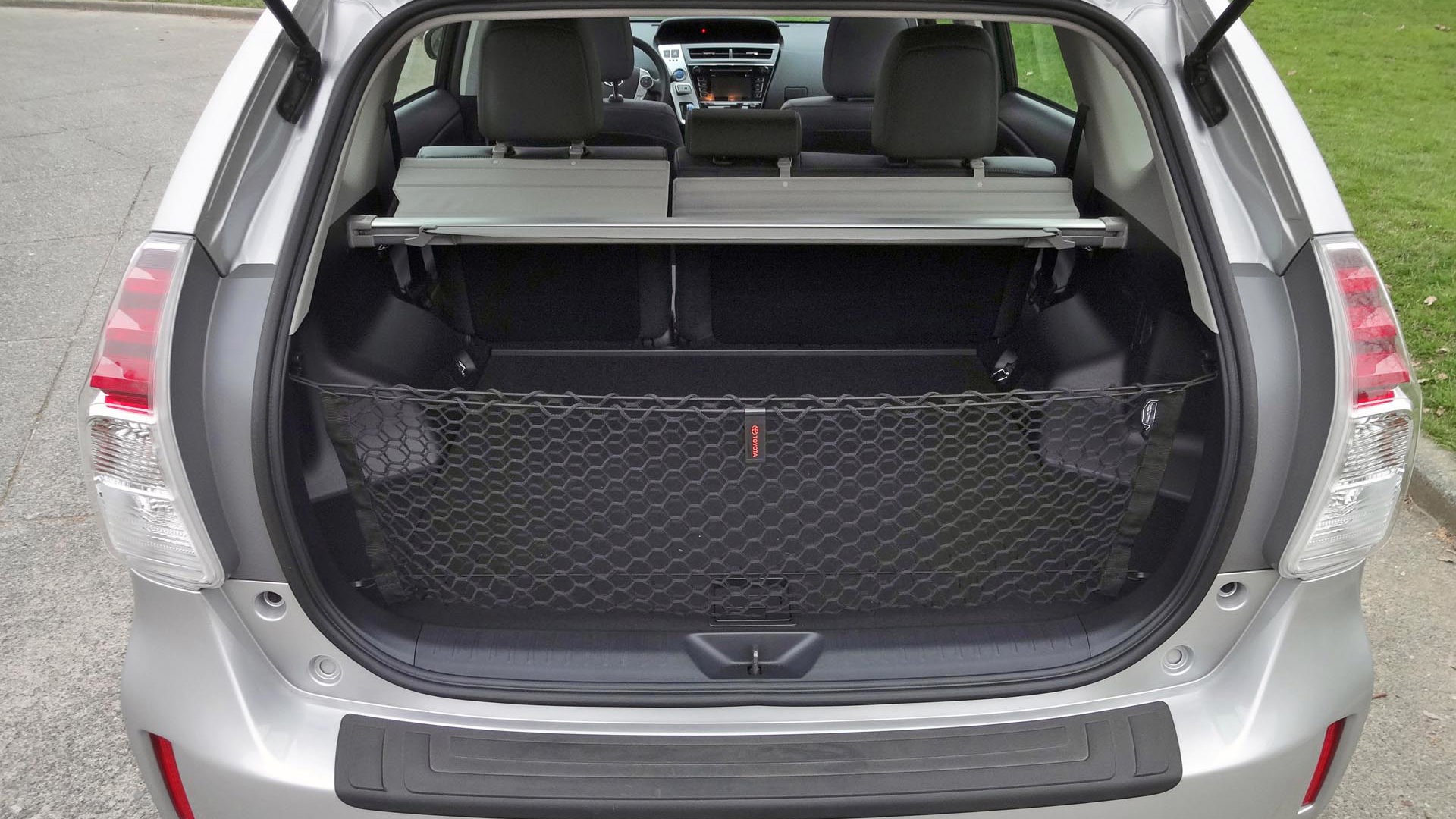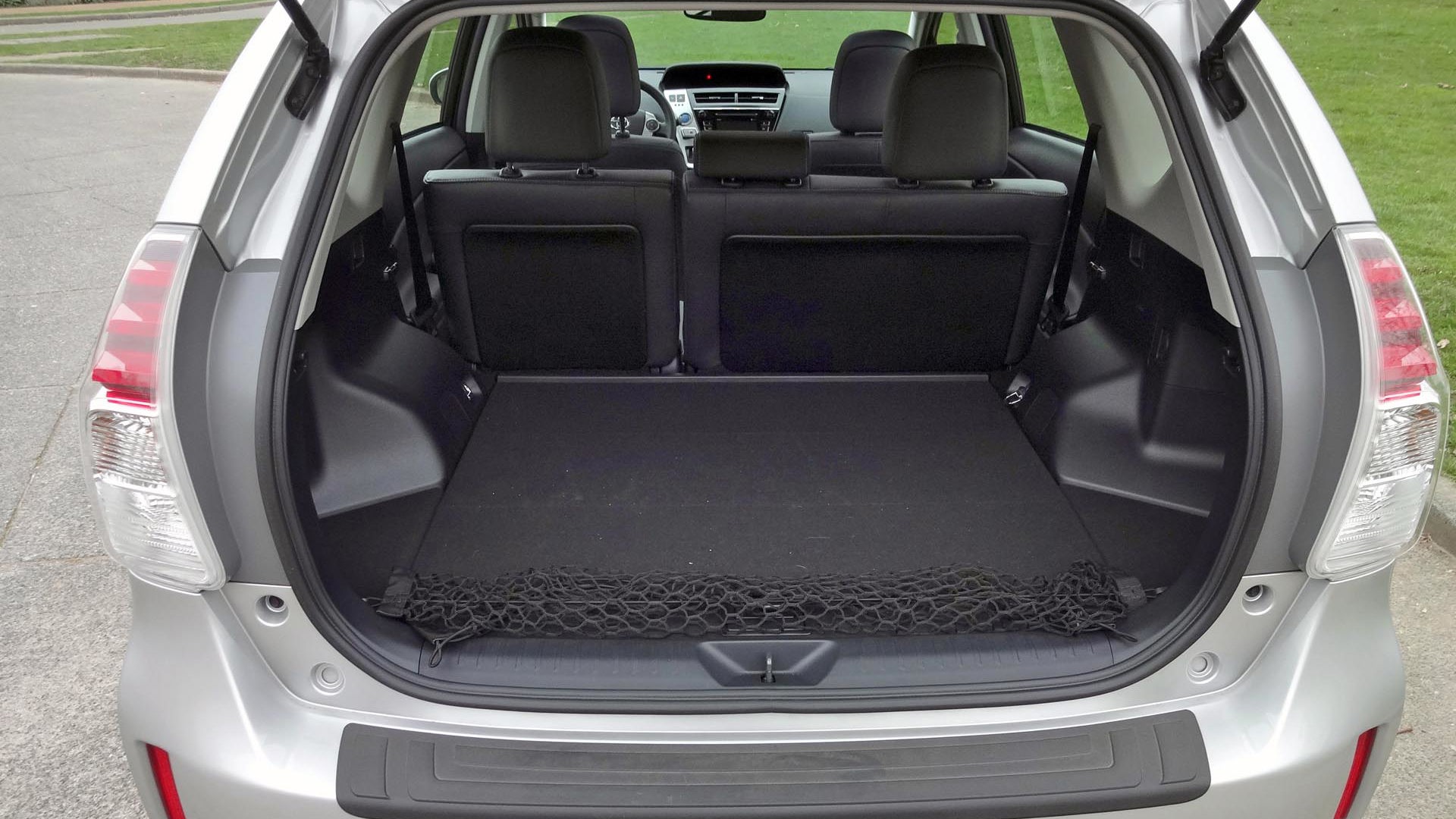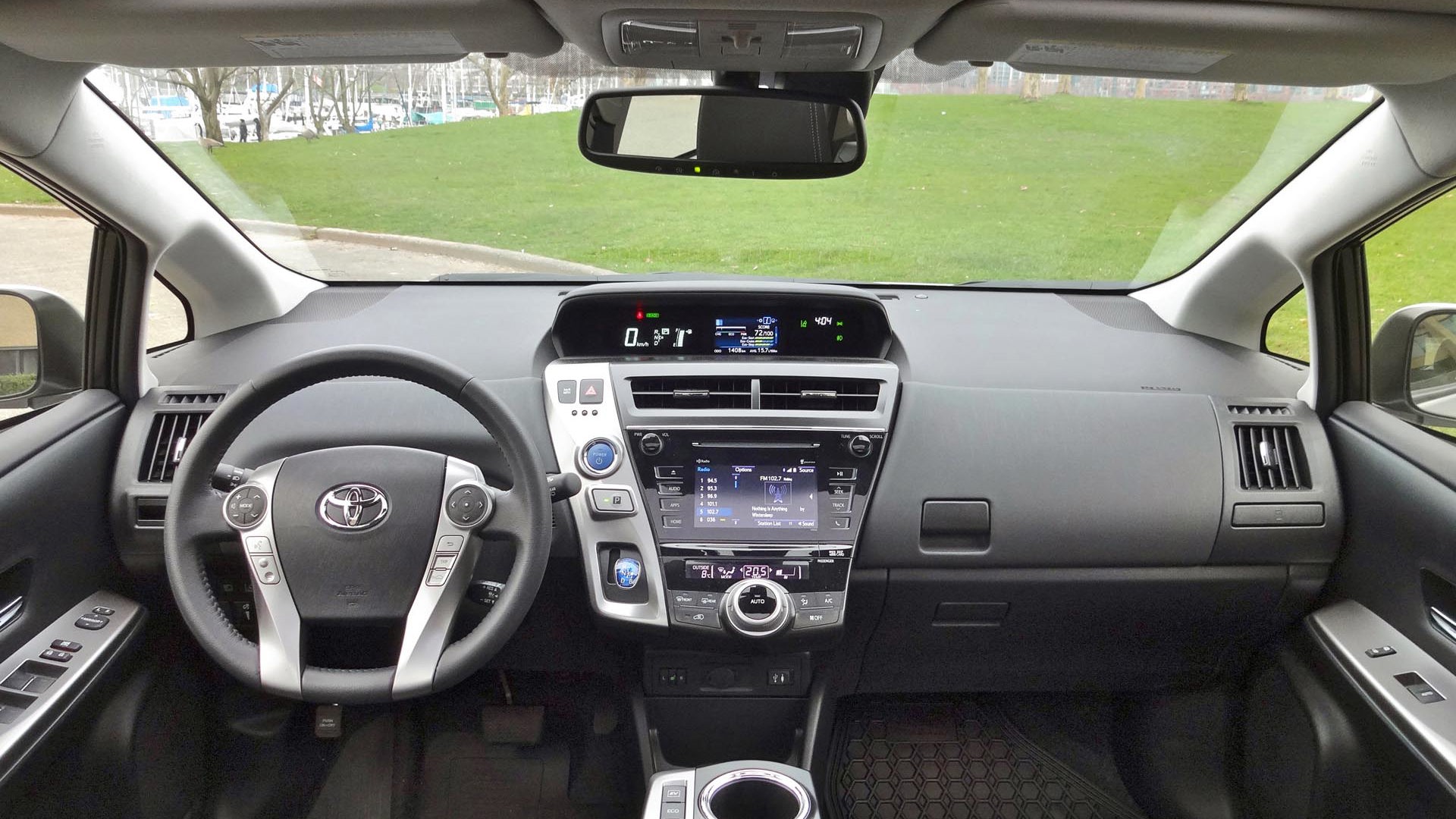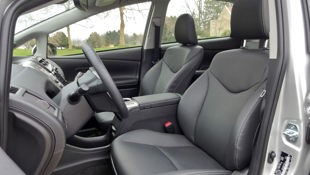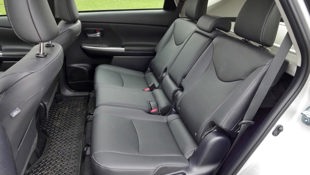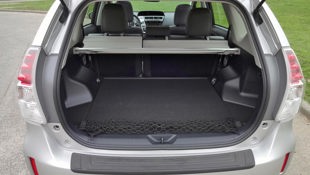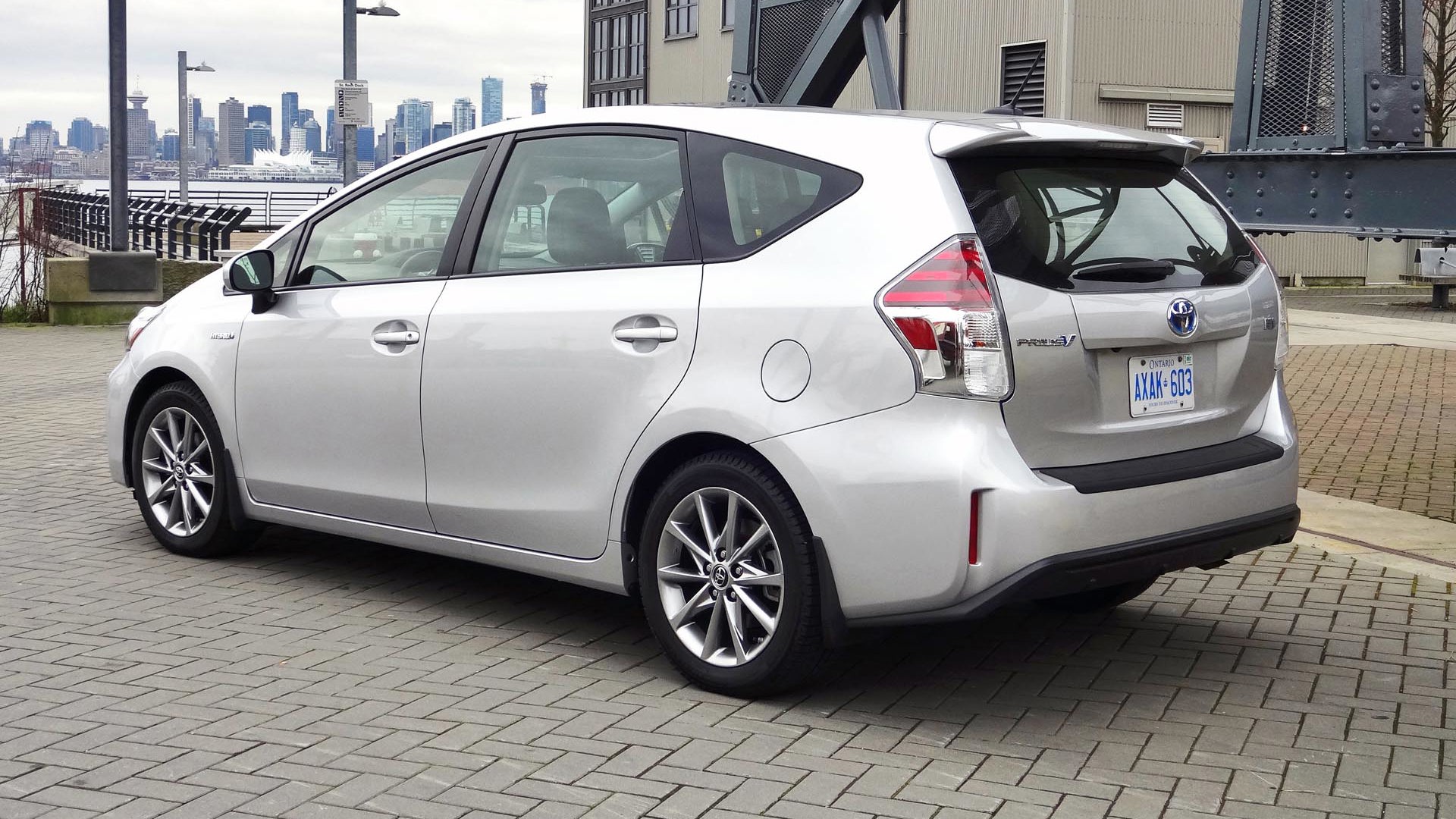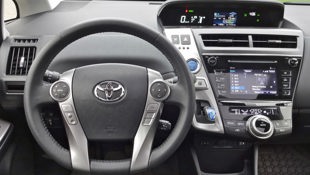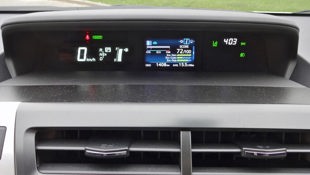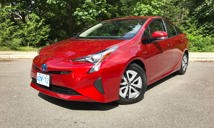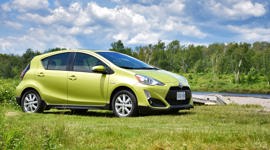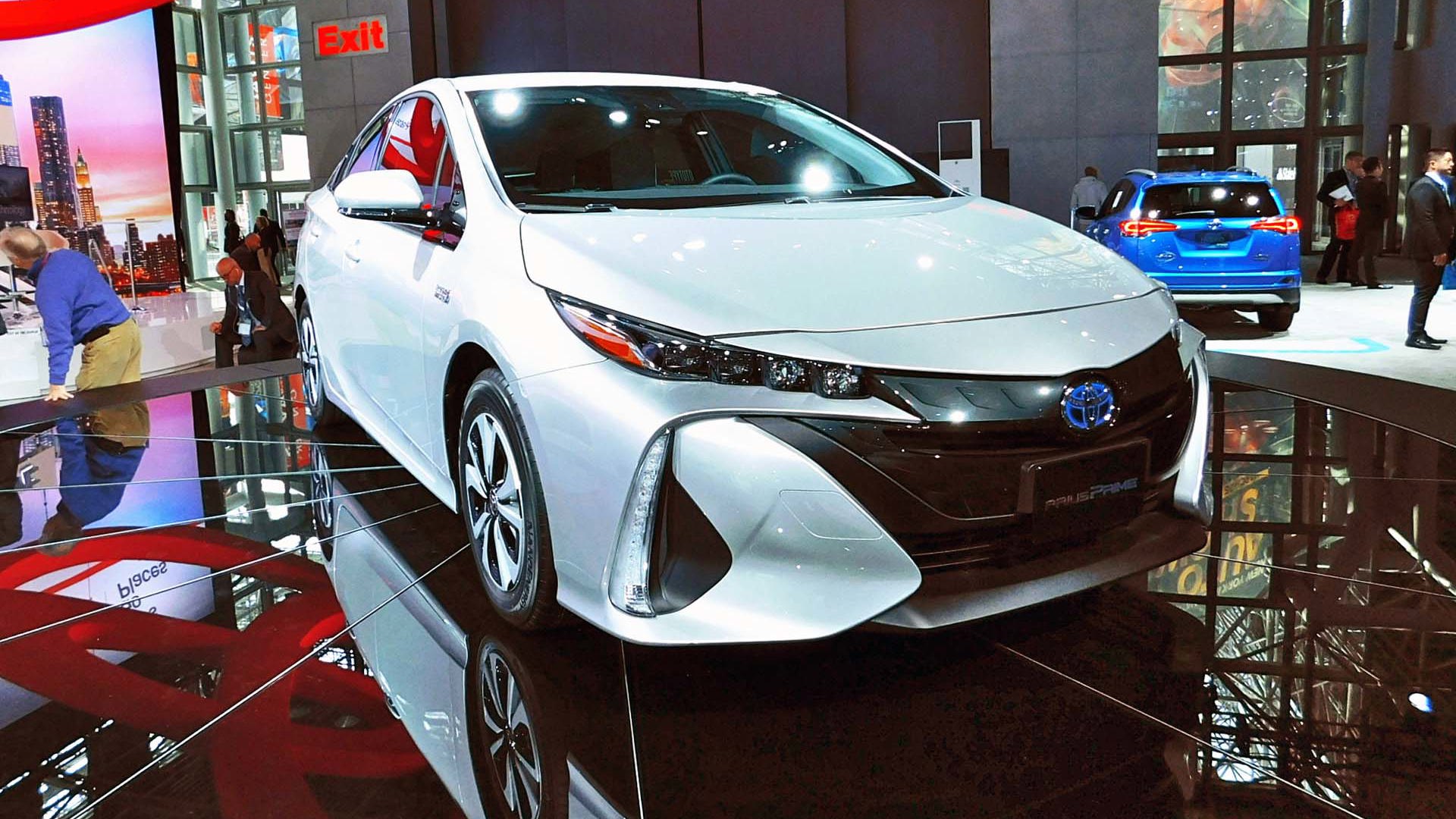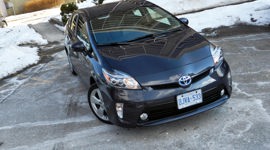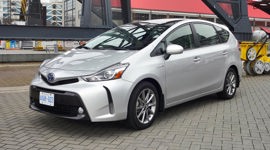Vehicle Type
The Prius v is commonly praised for being comfortable, easy to drive, and for a sturdy feel on the road.
Hybrid wagon
History/Description
In 2012, Toyota expanded their offering of hybrid-powered models by turning the popular Prius nameplate into a family of vehicles. For years, the Toyota Prius was a single, hybrid-powered model. From 2012 and on, the automaker offered up a more compact Prius c model, and the subject of today’s used vehicle guide, the larger and more flexible Prius v.
Think “v” for versatility. The Prius v was designed to answer the call of shoppers after a Toyota hybrid with added room and flexibility, more cargo space, and friendlier operation for busy and active families.
With an interior designed to accommodate five grown-ups and up to 971 litres of cargo space, the automaker also claimed that this largest of Prius models churns out 66 percent less smog-forming emissions than a comparable conventional vehicle, and that, at launch, it turned in the best fuel efficiency of any SUV, crossover, or wagon model.
Shoppers can look for sliding and reclining rear seats, as well as features like a panoramic sunroof, driver-selectable drive modes and a long list of safety features. Toyota’s Star Safety System, which networks numerous advanced safety features designed to help drivers maintain full control and a more confident drive, is also standard.
Like all hybrids, the Prius v is self-charging. The hybrid drive battery is charged by an on-board generator, via the regular operation of the vehicle. There’s no plugging in required or possible.
Engines
The Prius v is powered by the world’s most proven hybrid powertrain, by sales volume. An Atkinson-cycle 1.8-litre four-cylinder engine is teamed up with a high-torque electric motor, high-capacity storage battery, and sophisticated power management system. Drivers get 134 combined horsepower. A continuously variable transmission (CVT) is included on all models. This type of transmission enhances fuel efficiency and performance in addition to the hybrid driveline, since it has no pre-set gears to shift. Power is delivered on a smooth and seamless wave.
Look for fuel efficiency on par with (or better than) a much smaller and less powerful compact car.
What Owners Like
Not surprisingly, most owners were attracted to the Prius v for its combination of generous sizing, minuscule fuel bills, and the space and flexibility to tackle a multitude of activities with ease. Many shoppers also take confidence from Toyota’s reputation as a world leader in hybrid vehicles, as well as the Prius v’s strong safety ratings. The up-level stereo system is also highly rated, and the Prius v is commonly praised for being comfortable, easy to drive, and for a sturdy feel on the road.
What Owners Dislike
Gripes generally centre around the driving dynamics. Many owners report that the Prius v’s suspension and steering feel “mushy” and that the acceleration is adequate, little more. According to most owners, this is a vehicle designed for the driver who prioritizes fuel efficiency more heavily than any other factor. Further, some owners report that the Prius v’s air conditioner and heater system may be outgunned on very hot or very cold days.
Here are some owner reviews.
Pro Tip: Check the Records, Not the Badge
When shopping for a used Prius v, note that the Toyota badge on the hood is not a guarantee that the machine will be reliable and trouble-free. The way the vehicle was maintained by past owner(s) is a far greater predictor of long-term reliability. The gist? Remembering that a neglectful owner can ruin the reliability of any vehicle is a great way to avoid hassle down the line.
Pro Tip: Hybrid Means Two Sets of Components
The Prius v is a hybrid, but it’s also a car made of components and parts and systems that can wear out, break or fail. When shopping, remember that Prius v, like all cars, has tires, brakes, fluids, filters, suspension components, and other accessories that should be inspected for proper condition before you buy. A pre-purchase inspection (PPI) carried out by a Toyota dealer technician is strongly advised. The Prius v also requires regular oil changes, like any other car, since it has an engine. Be sure the past owner hasn’t stretched or skipped any of these, as this can cause engine damage and void remaining warranty coverage.
Pro Tip: Learn from Current Owners
If you’re after some more information to help you decide whether or not a Prius v is for you, consider checking out an owner’s forum, like www.priuschat.com. Here, numerous owners share stories, photos, troubleshooting tips and other experiences. There’s a wealth of information available to help perspective owners get familiar with the ins and outs of the Prius v.
The Test Drive
Recall Work
Once you’ve decided on a used Prius v, arrange to have any outstanding recall work completed as quickly as possible. Prius v was subjected to at least four recalls, which are designed to address latent safety defects. With the VIN number of the vehicle, a dealer service department can quickly determine which, if any, recall work is outstanding for the specific model you’re considering. If any recall work is outstanding, make arrangements to have it completed as quickly as possible. Recall work is performed, free of charge, by dealers.
Driveline Vibration
Some owners of higher-mileage Prius v models (with well over 100,000 kilometres) have reported a strange vibration from the vehicle at lower speeds, which may have several causes. In some cases, owners theorize that the vibration may be an issue with a worn-out CV joint (a driveline component), loose or corroded exhaust heat shields, or may be the result of a hybrid drive battery that’s past its prime. In other cases, a clogged or malfunctioning EGR valve in the engine requires some attention, or replacement.
Vibrations can also be caused by out-of-balance wheels or tires, alignment issues, and a variety of other factors. The gist? There are dozens of things that can cause vibrations, and if you experience any, be sure to have a professional investigate further.
Coolant Leaks
Some owners have reported issues with coolant leaks, which can cause engine damage and result in expensive repairs, if left unattended. Thankfully, coolant leaks are easy for a technician to detect during a PPI.
Toyota Prius coolant leaks seem to have been more common with earlier models than the Prius v, though shoppers are strongly advised to have a technician inspect the model they’re considering for proper cooling system health. This includes a check of the level and condition of the coolant, and a full, on-the-hoist visual inspection.
If the Prius v you’re considering has a coolant leak, the cause may be as simple as a bad O-ring, or as major as a failed head-gasket. Do not purchase a Prius v that’s exhibiting signs of coolant leakage without first determining the cause of the leak, and the associated repair cost.
Difficulty Shifting
If, on your test drive or later during ownership, you encounter any trouble getting the Prius v to shift into the desired gear, remember that the shifter is an electronic device, with no direct connection to the transmission. As such, any issues engaging the appropriate gear tend to be electronic in nature. In some cases, a new brake pedal switch or software update are sufficient to remedy the problem. Both of these fixes are easy and inexpensive. If the Prius v you’re considering has this issue, or any other, during its remaining warranty period, be sure to have your local Toyota dealer investigate and document your concerns, in case a future warranty claim is required. Note that in some cases, this issue is remedied by simply pressing harder on the brake pedal when trying to shift gears. Here’s some more reading.
Power Windows
Try all of the Prius v’s power windows, opening and closing each one fully from the switch on each door, and from the master window control panel on the driver’s side door. If you encounter a window that fails to open or close fully, or suddenly reverses direction for no apparent reason, the cause may be related to an overly sensitive anti-pinch mechanism, which is designed to automatically reverse the window direction if an obstruction is detected. In many cases, the fix is an easy one: simply reset the window mechanism by rolling the window up all the way, and continue holding the switch up for five seconds after the window closes. Repeat this process again immediately, rolling the window down and depressing the switch for an additional five seconds once that’s completed. Here’s some more reading.
The Big Battery
Hybrids are partially powered by batteries, and all batteries degrade over time and lose their ability to charge. Some Prius owners have had batteries that fail at high mileage, most have not, and in general, battery-related issues, if experienced, tend to happen far along in the vehicle’s life. Most Prius owners have not reported any battery-related issues, though many variables and factors affect battery life in a hybrid vehicle.
Still, shoppers should be on the lookout for warning signs of a weak hybrid battery (warning messages, poor performance, difficulty charging or maintaining a charge), and consider a full inspection by a hybrid-trained technician to be absolutely mandatory before their purchase. Certain trouble codes and warning messages, which may relate to poor battery health, can be detected by diagnostic scans performed before the vehicle is purchased.
If you’ll buy a very high-mileage Prius v that you suspect may eventually require a new battery, be sure to do your homework on battery replacement costs. These are typically less expensive than the average social-media expert claims, and numerous options are available to replace a dying hybrid battery.
There’s even a community of Prius owners who have purchased high-mileage models with weak batteries at a significant discount, had the battery replaced, and carried on driving for years.
The Other Battery
First-time hybrid shoppers may be unaware that many hybrids, Prius v included, also have a standard 12-volt battery that’s used to power certain systems and accessories in the vehicle. If this battery is unhealthy or weak, various problems across a multitude of systems can be expected. For maximum peace of mind, consider having the conventional battery in the Prius v you’re considering checked over, and replace it if doesn’t pass a battery test with good results.
Owners who will drive their Prius v only occasionally may want to consider connecting a trickle charger to the vehicle when it’ll be parked for more than a few days.
The Verdict
Overall, most Prius v owners report a positive and largely trouble-free experience, and a vehicle that’s roomy, accommodating, and very cheap to run. Once you’ve selected the model you’re most interested in, protect yourself from unpleasant surprises by having it inspected by a professional before you buy. This may cost $100 to $200, but could save you from buying a vehicle that’s in need of $1,000 worth of repairs.
Safety Ratings
IIHS: Top Safety Pick (2012)
NHTSA: 5/5 Stars (2013)

